Living Off The Grid Essay Example
| 📌Category: | , , |
| 📌Words: | 823 |
| 📌Pages: | 3 |
| 📌Published: | 05 June 2021 |
Environmental concerns have risen over the past couple of decades with increases in industrialization and consequently, increases in pollution. While some parts of the world still look lush green with growing plants and thriving animals, other parts of the world are gray, smog-covered cities gasping for fresh air. Although some people may think living off the grid doesn’t yield benefits because of the downfall of utility companies, it is actually true that living off the grid has significant value because it is cost-efficient, it increases environmental benefits.
It is true that some say living off the grid presents a con for utility companies. A reduction in users of public utilities means that there is a rise in costs and consequently a decreased demand for utility services (Source D). This decreased demand would decrease profits and put utility companies at stake. However, it's important to realize that this change could potentially encourage utility companies to provide more environmentally beneficial types of energy. This could impact the world in an increasingly positive way. Companies are businesses so they try to provide what the user wants so the user purchases more. If the user demands more efficient methods of energy, the companies would have to provide that overall increasing benefit. This means each individual would have to take a step towards using environmentally beneficial energy mechanisms. Some say that one person can not make the difference and that changing to off-grid is not going to make a significant change to the system (Source E). However, it's important to notice a universal truth that one person can make a difference. They just have to start it. And as a matter of fact, even if source E says one person can’t make a difference, Source D refutes that and says people leaving the grid, even a small amount, can induce a death spiral in utility companies (Source D). This further explains my point because it would promote better methods of energy. Even though these sources both decline off-grid living it's important to notice the conflicts they present within themselves overall depleting the significance of their argument.
Living off the grid is actually very easy and cost-efficient. Living off the grid does not mean pretending to live in the olden days with no light or warmth, it actually means finding environmentally beneficial ways to fulfill your necessities. This could mean using solar panels or led lights. And surprisingly, the cost of “solar-electric panels has fallen drastically over the past few years” meaning that it’s not expensive to go off-grid (Source B). Furthermore, LED lights and appliances have become more efficient so power lasts longer and you don’t have to worry about sitting in a candlelight dinner (Source B). It’s also important to recognize that the daily energy consumption in a home off-grid is 5 kilowatts compared to a regular home using 30 kilowatts (Source C). And even with this significant difference, off-grid homeowners have enough battery storage to run their house for 3 days even if there is no sun or wind (Source C). Source B provides the fallen cost of going off-grid and Source C points out the increased efficiency of going off-grid so taken as a whole, these sources suggest that switching to off-grid is low cost and very efficient due to the drastic difference in energy consumption.
With this ease comes great environmental benefits. The use of fossil fuels and the release of carbon emissions impact our world on a significant level. These fuels when released into the atmosphere cause major damage to the ozone layer and other atmospheric necessities causing global warming ocean depletion. Going off the grid rejects fossil fuels and encourages people to reduce their carbon footprint (Source A). Furthermore, as going off the grid means rejecting public utilities, it also decreases the phenomenal utility costs: global warming, pollution, drained aquifers, the devastating effects of fracking (Source A). This decrease in environmental concerns means that the Earth is given a chance to restore itself. If we look at the scale of this impact, we see that in a normal household there is a consumption of 30 kilowatts of energy every day; however, there is only a 5-kilowatt consumption of energy in an off-grid household. This means that a normal household uses about 6 times the amount of energy that an off-grid house uses. This means if people change to off-grid, environmental concerns would decrease 6 times the amount. That's a significant amount of reduction in pollution and global warming, and the great news is, going off-grid, as stated above, is very easy and efficient. Even though this does not seem like a big problem now, it’s important to recognize that if we ignore environmental concerns until the last minute, there is no turning back.
Although some people may still support say off-grid living has no value because of the benefits of utility companies, it is actually true that living off the grid has significant benefits because it is cost-efficient, and it increases environmental benefits making sure we can keep the world running green. Everyone can make a difference, and no matter how small it is, it would still tremendously help decrease environmental concerns. Going off-grid would tremendously benefit the environment and provide a beautiful world for the future generations. Destroying the world with increased amounts of pollution and global warming would show a lack of human responsibility.

Related Samples
- Thunderstorm Essay Example
- Why Puppy Mills Should Be Illegal Essay Example
- Essay Sample on San Francisco 1906 Earthquake
- Essay Sample on Animal Welfare
- Essay Example about Vogelkop
- The Canadian Water Reserve Crisis Essay Sample
- Essay Sample on Plastic Ban and Its Impact on Economy
- Persuasive Essay Sample: Global Warming Is Not a Hoax
- Persuasive Essay On Ocean Exploration
- The Invasive Lionfish Essay Sample
Didn't find the perfect sample?

You can order a custom paper by our expert writers
FRANK TALK ABOUT WHAT WE DO WITH OUR LIVES
What’s it like living off the grid.
Brief note from Work Stew editor Kate Gace Walton: The last Q&A-style piece that I posted (featuring Christine de Brabander’s thoughts on business travel ) was well received, so I decided to do another. For this piece, I asked Leland Dirks , a self-described “hermit,” what it’s like to live and work ‘off the grid.’

I live in the San Luis Valley of Colorado, about 10 miles outside of a village called Fort Garland, population 300. The county I live in has approximately 3,500 residents. Just to put that into perspective, the office building in which I used to work in Denver had about 50% more people than my entire county.
I grew up on a farm and loved the isolation, the time to read, the few distractions. When I left the farm at the ripe old age of 20, I vowed to never return. I was going to be a city boy, and I was. For the next thirty years, I lived in Denver, San Francisco, and Antwerp, Belgium. I worked for a large telecommunications company as a customer service representative, a supervisor, and a manager. My areas of expertise were technical writing, process design and management, group facilitation, organizational design, and some project management. I consulted for a while to start-up companies.
I lived in a beautiful Victorian house in downtown Denver and traveled all over the country, including a lot of time in the Northwest. My stress level was through the roof, and the many rounds of corporate downsizing and rightsizing made it worse. I finally reached a point where I’d had enough.
So, I started looking for places I wanted to live. The northwest was too expensive, cities had lost their charm for me, and I realized I wanted to live in the middle of nowhere, just like I did when I was growing up. Somewhere in heaven, my mother is laughing at her big city boy.
I knew this area from many camping trips, and when I checked real estate prices, I started looking seriously. In a very short while, I found my perfect five acres, with mountain views, a seasonal stream, quiet, and good solar exposure.
2. So you left Denver and bought a house there?
That would have been too easy. I had a well drilled and a septic system put in, and then I built a ten foot by ten foot shed. One hundred square feet. For the first winter, I lived in that shed with a dog, a cat, and—in spring—a baby chick. I didn’t know a soul who lived within a hundred miles. That was a long, cold winter.
When the snow melted that spring, I started building the house .
3. In what ways are you ‘off the grid’? In what ways are you still deeply connected?
I am off the grid in virtually all ways. All of my electricity comes from the sun (solar panels). My heat is provided by a combination of passive solar and locally harvested wood. My property is in a dead zone as far as cellular service. There are no power, telephone, gas, or water lines that connect me to the world. My sole means of electronic connection to the world is through a satellite Internet connection.
Let me put it another way: The nearest freeway entrance is about fifty miles away. The nearest Home Depot is about a hundred miles away. The nearest Walmart is thirty miles away. When I need a quick run to the grocery store, it’s ten miles. The nearest Target is about 120 miles away. So I’m pretty “off the grid.”
My most important connections with the world are through the Internet, the U.S. Postal Service, UPS, and FedEx. I got to know them all pretty well when I built this house. The hardware store in town didn’t have a lot of the things I needed, so I joke with the UPS driver that he delivered about half of my house, in pieces.
4. How do you make a living?
I’m a writer. I write mostly fiction, but I also have some non-fiction and poetry out there. My first books were about the building of this place. Other than the concrete work, I did most of it myself, with the help of friends for some of the heavy lifting.
I’m also a photographer and sell some of my photos online.
My needs are meager, which is good, because my income is meager, too.
5. What does it take to live the way you live? What qualities does one need to enjoy it and to thrive?
It takes a love of silence, of nature, and animals. My three closest friends are two dogs and a cat. We talk a lot.
It takes flexibility. You learn to adapt. If you’re missing an ingredient for a recipe, instead of doing a sixty-mile round trip, you learn to substitute. It also takes a fair amount of skill. I helped an uncle with constructing a house when I was eight years old, and I helped some friends do renovation and remodeling, so that all helps. It’s good if you can be your own plumber, electrician, and carpenter, because there aren’t many of those out here.
Planning is a good skill to have. When you make a run into town, you want to pick up everything you need for a while, because a 60-mile round trip eats up most of a day by the time you’ve run errands, and hit all the stores you need.
I think it also takes a love of learning. I do a huge amount of research for projects before undertaking them, and I keep on learning when I make mistakes.
I’ve seen folks move out here in the summer, start building their homes, and by the time winter is halfway over, they’ve gone crazy (sometimes literally) because of the isolation. There are a lot of half-finished houses in the area and a lot of divorces of people who thought building at the end of the world would help make their marriage stronger.
But if you make it through the first winter, they say you’re a permanent resident. The locals treat you differently after that first winter, with more respect, with an understanding that you’re in it for the long haul. Winter temperatures are often in the -20s (Fahrenheit) and the wind chill often drops into the -40s.
A love of reading is also a requirement, I think. If not reading, at least something that brings the rest of the world into your head. Even a hermit needs mental stimulation.
6. Is there anything you miss about your pre-Hermitage life?
I miss fast Internet connections. I miss trying new restaurants. I miss sushi. And I miss being able to jump on light rail to go visit friends. I don’t miss the stress, nor the noise, nor the smells of the city. I kind of miss having a phone, too, but that’s a mixed blessing, when you figure out how much time you can spend talking compared to email or Facebook communications.
7. What do you value most about your current way of life?
I love the time to think, seeing the same landscape go through all four seasons, and the constant meditation. I love being able to go for a four-hour walk with Angelo and Maggie. And The Cat. I love to treat them well, because they’re my co-authors ! Angelo, especially, is an amazing companion.
I love waking up just before sunrise, grabbing the camera, and sharing the photos of this beautiful place. I love writing down by the creek or in a grove of trees, sometimes on my iPad, sometimes in a composition notebook with a pen.
Most of all, I’m fascinated by the contradictions of my life: off-grid, yet connected in ways that matter…a hermit, but a sociable one, thanks to the Internet.
Leland Dirks lives and works in the San Luis Valley of Colorado. His books are available through Amazon and Barnes and Noble; click here for a complete listing of his fiction and non-fiction titles. He has also published a collection of photos documenting his ‘Valley of Light’; this volume is available in paperback and hardcover , and as an ibook .
Would you be interested in fielding some questions about your work life? If so, please email me ([email protected]) or drop me a message via Facebook , and we can chat about the precise angle you’d like to tackle. Other Work Stew contributors have found it helpful to capture their thoughts in writing —and the final decision on whether or not to publish will always rest with you.
Share this:
Great interview. So fascinating to learn more about Leland. 😀
[…] Call for Q&A subjects: Would you be willing to tell me what you do for a living, how that came to be, and how you feel about it? If so, shoot me an email (subject line: Q&A) and I’ll be back in touch shortly: [email protected] . I want to run more pieces like this one and this one. […]
“I keep on learning when I make mistakes.” Leland Dirks (aka Leland Hermit) has taken the leap. His daring adventure into the mountains harkens back to the sturdy pioneers that braved the same landscape ages ago, building/snaring/growing what they needed and doing without. His smarts will keep him alive; his dogs and cat will keep him sane; his splendid isolation will keep him on track – for this place he’s built is a Journey that he seems well-equipped to handle. Good luck, brother.
Leave a comment Cancel reply
Blogs by work stew contributors.
- Another Day at the Office
- Erratum Squared
- Gopi Kallayil
- Jeff Wenker
- Miss Terri, Writing of Life's Mysteries
- Peter Morningstar
- Plan B Nation
- The Reverend Dr.
- The Thighmaster Route to Kona
- Toungue-Tied America
Work Stew Archives
Work stew categories.
- Contests (20)
- Essays (82)
- Search for:
- ©2011-2013 Work Stew. All rights reserved.
Enter your email address to follow this site and receive notifications of new posts by email.
Email Address:
Sign me up!
Join the Stew on Facebook
Recent Tweets
Blog at WordPress.com.
- Already have a WordPress.com account? Log in now.
- Subscribe Subscribed
- Copy shortlink
- Report this content
- View post in Reader
- Manage subscriptions
- Collapse this bar

Living Off The Grid: What Does It Mean?
By: Author Eric W
Posted on Published: 12/17/2014 - Last updated: 09/17/2023
Sharing is caring!
What is living off the grid ? It’s all about sustainable living and renewable energy. But what does it really mean? Is it just a term? Is there some secret mysterious explanation? Is it simply opinion?
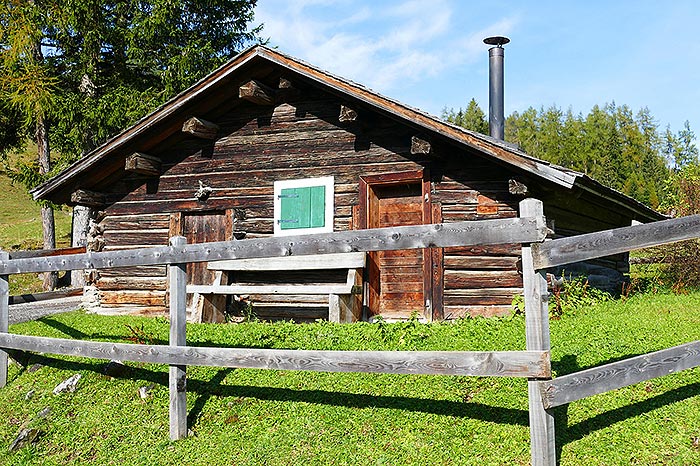
Living off the grid: escaping “the system”
There’s an ongoing debate in the off grid world about what it really means to “ live off the grid “. For some folks it means primitive living, cutting ties with all forms of technology and thumbing your nose at “The Man”.
It’s kind of a political statement to move to the wilderness and separate yourself completely from the system. To divorce yourself from a system of materialism, greed, corruption, and debt slavery becomes more of a proclamation of independence and freedom from a system that one deems oppressive. This is really taking things to the maximum and few people view off grid living in this manner.
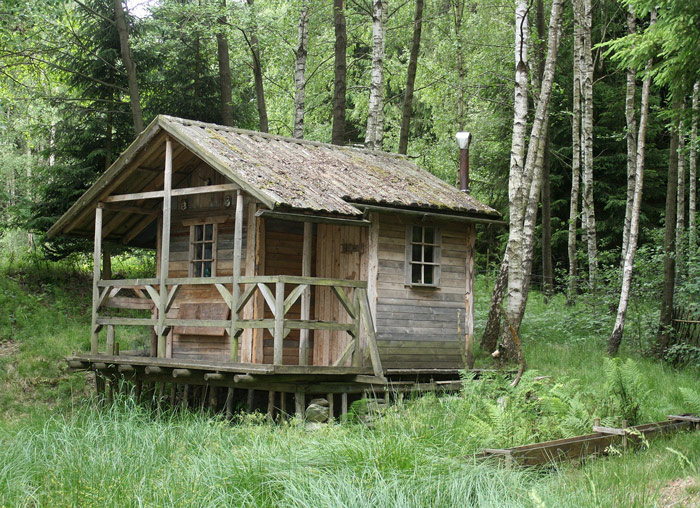
Survival and preparedness
Other folks look at living off the grid as a necessity for preparedness and survival purposes. It becomes a mode of survival and a way to live and keep your family safe in the event of an emergency situation. An emergency could mean a simple electrical blackout, a total financial collapse, political upheaval, war, or a natural disaster.
People call it prepping or survival, and there are some die-hard preppers out there who feel that living off grid is all about being prepared, making sure they have enough supplies to take care of their families, and survive and apocalyptic scenario.

Living a sustainable life
For most people, living off the grid simply means living a sustainable life, reducing the resources they consume, and in fact producing more resources than they use. It means disconnecting not just from the electrical grid, but also creating your own electricity, growing your own food, and living “green”. Some simply call it living off the land .
Sustainable living is using renewable resources at a rate slower than what you can replace and produce. It’s about finding balance in a lifestyle that gives back to the earth rather than taking from it.
Living Off The Grid: What Does it Mean?
The term “ off grid “, or “ off the grid ” has multiple meanings, and many people have different opinions as to what off grid living truly means. The reason for this is simple. Everyone lives their life differently.
I’d like to point out the obvious before we start clouding the issue with definitions, meanings, interpretations, and more debatable opinions.
Before we attempt to define what “ off grid ” is, we should clarify what “ the grid ” is, then we can attempt to define what it means to get “off” the grid.
What is “The Grid”?
“ The Grid ” refers to the electrical grid , i.e. the system or network which delivers electrical power to residential and commercial properties, building, homes, and machinery, etc.
The Grid: (Electrical Grid) “…An electrical grid is an interconnected network for delivering electricity from suppliers to consumers. It consists of generating stations that produce electrical power, high-voltage transmission lines that carry power from distant sources to demand centers, and distribution lines that connect individual customers…” ~Wikipedia Electrical Grid
OK. So now we know what the grid is, we can define what being “off” the grid is.
Pretty simple. It means off , as in disconnected.
Off Grid: (Off the Grid) “…The term off-grid refers to not being connected to a grid, mainly used in terms of not being connected to the main or national transmission grid in electricity …” “…The term off-the-grid (OTG) can refer to living in a SELF-SUFFICIENT manner without reliance on one or more PUBLIC UTILITIES …” “…Off-the-grid homes are AUTONOMOUS ; they do not rely on municipal WATER SUPPLY , SEWER , NATURAL GAS , ELECTRICAL POWER GRID , or similar utility services…”
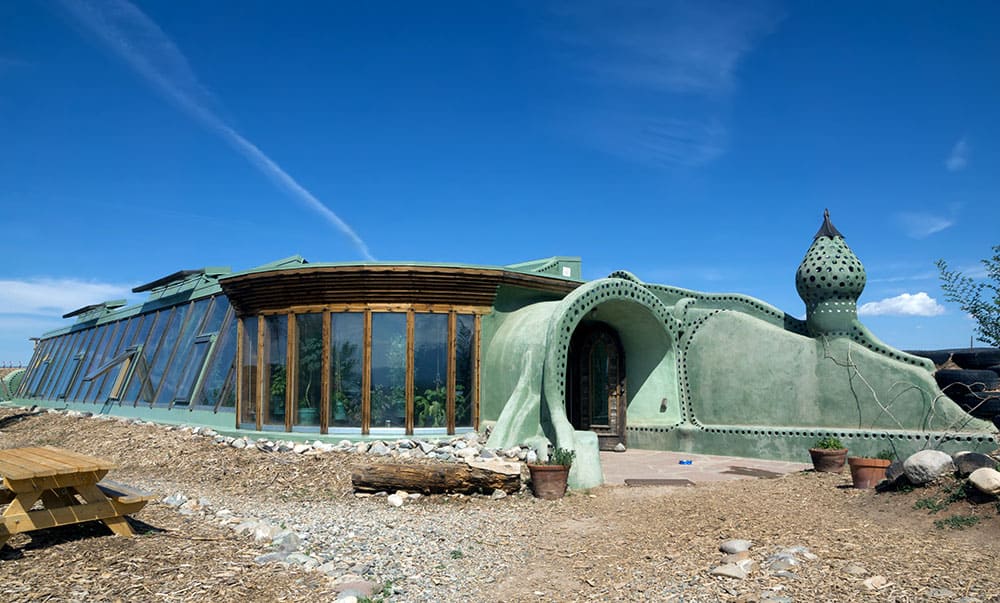
IrinaK/Shutterstock
Primitive Living?
Does being off grid mean one must live primitively like back in the pioneer days? Not necessarily. Some people might opt to live that lifestyle, however, that is usually based on personal preference. It is not a hard and fast rule of living off grid, and is usually a personal choice. Living off grid does not mean primitive living .
For one person, being off the grid may mean simply being disconnected from the power grid, while another person may have the opinion that to be “ truly off the grid ” they must disconnect from all utilities and live a completely self-sufficient lifestyle, free from reliance on public sources of utilities, food, or housing.
The point being, BOTH of these opinions of what being off the grid means are correct!
There really is no black and white definition of what living off the grid means, because generally speaking, it means different things to different people.
Simply put, one fact is undeniable. Off grid literally and simply means being disconnected from the electrical grid .
That’s it. Anything above and beyond that is a personal lifestyle choice. You choose how you want to live it.
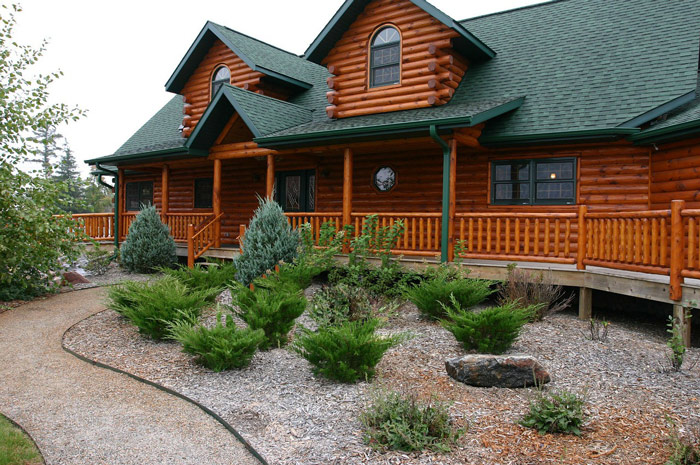
Living off the grid is simply a way of life.
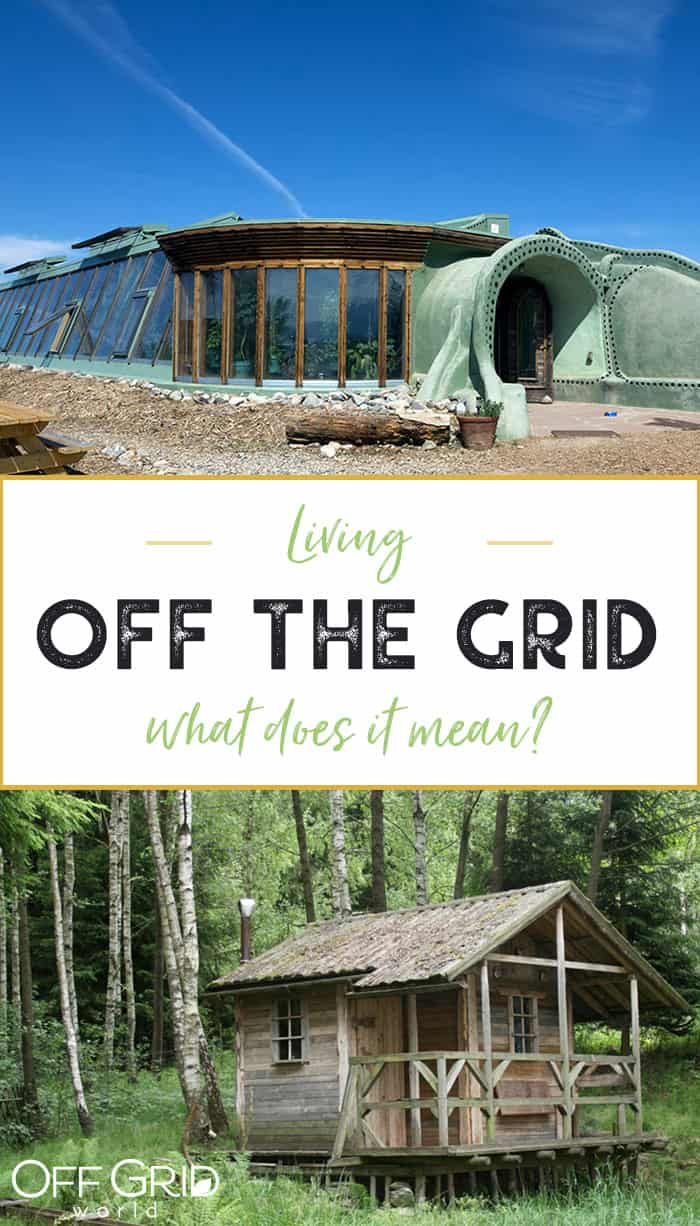
Off-Grid Living Experience - Day 1: No Electricity, Water or Gas - Green Eating And LivingGreen Eating And Living
Wednesday 31st of December 2014
[…] sharing my Off-grid living experience. I turned off the city water, natural gas and grid power. In spite of all my preparing […]
Prepper News Watch for December 18, 2014 | The Preparedness Podcast
Thursday 18th of December 2014
[…] Living Off The Grid: What Does It Mean? […]
Home — Essay Samples — Life — Worldview — Living Off the Grid: Challenges and Benefits
Living Off The Grid: Challenges and Benefits
- Categories: Worldview
About this sample

Words: 703 |
Published: Sep 5, 2023
Words: 703 | Pages: 2 | 4 min read
Table of contents
Introduction, challenges of living off the grid, benefits of living off the grid.

Cite this Essay
Let us write you an essay from scratch
- 450+ experts on 30 subjects ready to help
- Custom essay delivered in as few as 3 hours
Get high-quality help

Verified writer
- Expert in: Life

+ 120 experts online
By clicking “Check Writers’ Offers”, you agree to our terms of service and privacy policy . We’ll occasionally send you promo and account related email
No need to pay just yet!
Related Essays
1 pages / 641 words
1 pages / 489 words
3 pages / 1353 words
2 pages / 1013 words
Remember! This is just a sample.
You can get your custom paper by one of our expert writers.
121 writers online
Still can’t find what you need?
Browse our vast selection of original essay samples, each expertly formatted and styled
Related Essays on Worldview
Do you think the world can become a better place? Although many of you folks think it can’t, well guess what, you are wrong. "How to make the world a better place" is a question many ponder. The world is now horrible because of [...]
Worldview is a term that refers to the way individuals perceive and interpret the world around them. It is a framework through which people make sense of their experiences, beliefs, and values. Worldview is a complex and [...]
In the evolving landscape of philosophical thought, the transition from modern to postmodern perspectives marks a significant shift in how individuals understand reality, knowledge, and existence. While these worldviews are [...]
Writing a worldview essay is a thought-provoking and intellectually stimulating exercise that allows an individual to articulate their beliefs, values, and perspectives on various aspects of life. A worldview encompasses the [...]
It’s amazing how much the world can change in such a short amount of time. I’m only 23 years old, but the world I remember as an adolescent seems so far away and make believe, almost like it was all just a dream or something I [...]
The issue of travelling in time is not new because it has been interesting to people for centuries and continues to be interesting to us today. However, in spite of people’s high concern and eagerness to uncover time’s [...]
Related Topics
By clicking “Send”, you agree to our Terms of service and Privacy statement . We will occasionally send you account related emails.
Where do you want us to send this sample?
By clicking “Continue”, you agree to our terms of service and privacy policy.
Be careful. This essay is not unique
This essay was donated by a student and is likely to have been used and submitted before
Download this Sample
Free samples may contain mistakes and not unique parts
Sorry, we could not paraphrase this essay. Our professional writers can rewrite it and get you a unique paper.
Please check your inbox.
We can write you a custom essay that will follow your exact instructions and meet the deadlines. Let's fix your grades together!
Get Your Personalized Essay in 3 Hours or Less!
We use cookies to personalyze your web-site experience. By continuing we’ll assume you board with our cookie policy .
- Instructions Followed To The Letter
- Deadlines Met At Every Stage
- Unique And Plagiarism Free
8 Surprising Benefits of Living Off The Grid
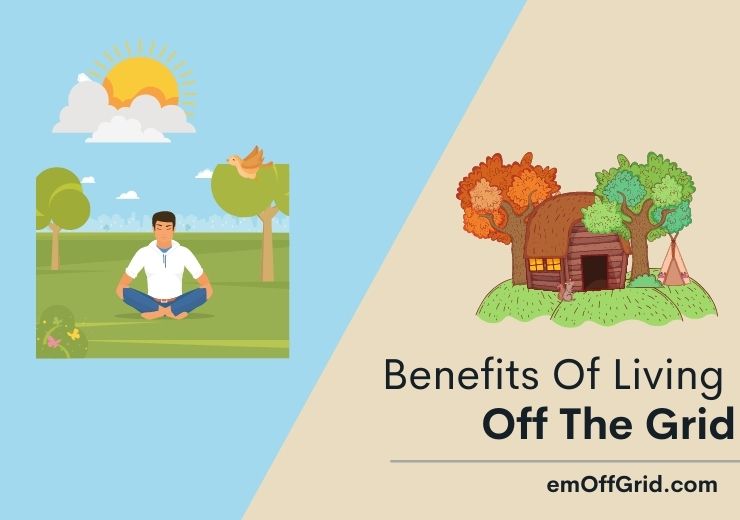
Off-grid living is full of adventure and benefits. You can start a self-sufficient life that is easy, simple, and beneficial.
You have to make a plan to live off the grid and ensure that you are going to start in a perfect place.
At the very beginning, it is important to set up your mind for off-grid living.
Living in nature without the urban lifestyle will give you more opportunities to enjoy life. You will get a sustainable living culture with natural resources.
If you are curious about off-grid living and its benefits, this writing is especially for you.
Here, we present the definition and 8 benefits of living off the grid. Let’s get started.
Definition of Living Off The Grid
Why are more people choosing to live off the grid, saves you money/lower cost of living, reduced impact on the environment/earth, independence/less dependent, sustainable and healthier lifestyle, preserves knowledge, fewer rules & more freedom, attachment and creating great memories with your family, experience and inspires others, wrapping up.

Living off the grid is a term that refers to a house in a rural area, where the family members grow their own food. It includes cattle farming, using natural resources, and making a self-sufficient life.
In general, the place should be in a remote area from the city. It might be a place where you can feel the tranquility of nature.
When living off the grid , you are disconnected from mainstream society. People live in off-grid places according to their individual choices.
People are moving to off-grid places to get relief from their busy life and enjoy peaceful nature. It depends on two things when people want to start a new life and take the advantage of off-grid living.
This life is free from environmental pollution, food poisoning, and heavy traffic.
Related Posts:
- 10 Amazing Health Benefits of Basil (When Living Off-Grid)
- 3 Important Pork Benefits for Skin
- 5 Health Benefits of Echinacea
- Saving Money to Move Off the Grid (72 Ways Before &…
Some people are just doing their nine to five jobs and back in the room for the next morning. The busy life drives them to change their schedule and explore a new lifestyle.
On the contrary, adventurous people are conscious of the benefits of living off the grid. They make a serious plan for an off-grid destination and stay there permanently or for a few months.
So, it is all about your condition whether you will live off-grid or not.
All The 8 Benefits Of Living Off The Grid

You already know that there are several benefits of living off the grid. The self-sufficiency of this life makes you happy without any reason.
We present eight significant benefits of off-grid life that will inspire you to make your decision.
Living costs are increasing day by day. City life has hundreds of options to pay for. Sometimes, it is difficult to maintain the costs. By the end of the month, you have nothing to save for an emergency.
But, off-grid life will enable you to lower your living costs and save money. You will produce your own food, live in a self-built house, and use the available natural resources.
The more time you pass, the more resources you will have. Off-grid living will enrich your lifestyle daily.
Reduced Energy Costs
Can you imagine a month without power bills? Yes, it is possible in off-grid life. You can save hundreds of dollars by using natural resources for energy production.
Solar and wind are the best options for off-grid energy solutions. A solar system will give you electricity without using fossil fuel.
Similarly, wind turbines are suitable for power production. You can use it as an alternative to the sun.
These renewable energy resources are free and there is no risk of a power cut.
Reduced Monthly Costs: Utensils/Food
Monthly costs include all the expenses from food to dust management. If you are living in mainstream society, you have to follow the social code and conduct.
Besides, you have to follow community guidelines and pay for some unexpected charges. But, off-grid living will reduce your monthly costs and give you access to more natural resources.
For example, you can manage fresh fruits from the forestry and use the fish from the river. You don’t need expensive utensils for the family when living off the grid.
Furthermore, natural waste management systems keep your living area automatically fresh.
Did you know your luxury and convenient lifestyle enhances the carbon emission rate? City life requires several home appliances and devices.
These devices, cars, and machinery increase the possibilities of environmental pollution. But, off-grid life will reduce the impact and enable you to go green.
You will feel the peace of nature without producing carbon dioxide. An off-grid place has its own beauty and tranquility.
If possible, make a strategic plan to stay off-grid. Environmental impacts will automatically be reduced. Clean and sustainable earth will welcome you.
Off-Grid Is Green
Do you have any idea about romanticism where nature and the past get glorified? Off-grid life will invite you to go green.
If you select a place with natural beauty, it will change your lifestyle and enjoyment.
Nothing is more appealing than the natural atmosphere. In the remote area, you can feel the peace of surroundings.
The hilly and beach areas are more attractive than other places.
Renewable Energy
You will get ample opportunity to use renewable energy while living off the grid. You will be disconnected from the grid, and renewable energy only can help you in this condition.
When it comes to renewable energy, the solar system is the best solution. This energy resource will enable you to get a stable power source without monthly bills.
You can check the best solar system for off-grid life here .
On the contrary, wind turbines can be used for energy production in remote places. It will enable you to get power when there is no sunlight.
It will reduce the usage of fossil fuels and minimize impacts on the environment.
Renogy 100 Watts 12 Volts Monocrystalline Solar Starter Kit

- 【Efficient Performance】The Starter Kit will produce an average of 500Wh of electricity per day (Based on 5 hours of direct sunlight condition). The Cell Efficiency can reach 22%. The bypass diodes ensure that the panel has an excellent performance in a low-light environment and the TPT back sheet dissipates excess heat to ensure smooth output performance.
- 【Solid Quality】Advanced encapsulation material with multi-layered sheet laminations protects cells from physical damage and distortion, improving cell performance and providing a long service life.
- 【Smart Function】The Wanderer PWM Charge Controller is compatible with four different types of batteries: Sealed, Gel, Flooded, and Lithium batteries. It also features advanced 4-stage charging (bulk, boost, float, and equalization) to ensure your battery is efficiently and safely charged to 100%.
The most powerful factor about off-grid life is independence. You are not dependent on anyone except God. You can use natural resources to lead an adventurous life.
You will grow your food, do farming, and use renewable energy. Here, you are free from the supply chain.
You will do everything according to your routine. No one will force you to complete something within the deadline.
This process makes you happy and you will enjoy your life more than you expect.
Self-Control About Everything So Better Flexibility
Self-control gives you liability for your everyday work. You are driven by yourself, and no one can affect your time. You are the king of your own kingdom while living off the grid.
You will be motivated by daily activities that make you more active than urban life. You can easily go forward with your flexible schedule.
Here you will enjoy a self-sufficient life without any pressure. It offers an easy, simple, and convenient lifestyle.
Less Affected By The Socio Economic Cycle
Socio-economic cycle refers to the relation with your society. This cycle is connected to everything that a society holds.
The social cycle also provides you all the supplies for living a healthy life. You are completely dependent on this cycle.
But, off-grid life is less affected by the socio-economic cycle. There is no risk for electricity blackouts, water shortage, and other life-supporting equipment.
You will be free from the high rising price of daily commodities and foods.
Off-grid life offers a sustainable and healthier lifestyle. You will get more opportunities and time for relaxation. It will increase your working ability and enable you to think out of the box.
Here are some aspects of living off the grid that make your life convenient and peaceful.
Wide Open Spaces. Connect With Nature

Remote areas are wide, open, and spacious. You can connect with nature and enjoy the beauty of the natural world.
It will make your mind fresh and broad. The open space is full of excitement. Besides, there are no busy roads, buildings, and offices.
You will get enough time to think about this creative world and yourself.
Fresh Air. More Peace & Quiet

Enjoy the tranquility of nature and breathe fresh air from the open space. Off-grid life offers you the best enjoyment out of this busy life.
Fresh air enables you to breathe healthy air that is highly recommended. Healthy breathe can protect against respiratory diseases. A peaceful environment will keep your brain fresh.
The biggest advantage is that you can feel the quiet environment with friends and family. It helps you to follow a sustainable and healthier lifestyle.
Must Physical Exercise

To keep your body fit, exercise daily for a certain period. It helps you to burn calories and maintain a healthy life.
While living off the grid, you will get the opportunity to do physical exercise on the path of nature. It is a scientific factor that releases your pressure and you will feel good.
Healthier Food
Whether living off the grid or in the metropolitan area, you can not have a healthy and sustainable life without nutritious food.
It is important to regularly eat healthy foods. When living off-grid, make a list of different items that are available in the place. Try to grow fruits and crops from the very first day.
Knowledge is power. You will never be successful without proper knowledge and planning.
An off-grid living will make you the perfect survival with real experiences. You can store this knowledge for further uses while planning to live in the path of nature.
When planning to live off the grid, you are required to study and learn new things related to this field.
In preparation, you gain that knowledge and bring it to you in your entire life. That would be a great benefit for you and your family.
Here are some basic ideas that help you to preserve knowledge and skills for off-grid life.
Getting Back To Our Roots
Always think that you are getting back to your roots. The city life is artificial and we created this for work opportunities.
Our roots are in nature, and we should know the history of off-grid living. Off-grid life will inspire you to live in a nice place far away from the busy cities. You will have an opportunity to get back to the root.
Learn New Skills And Share It With Others
If you are living in an off-grid community, you can learn new skills and share them with the community.
This process creates a sustainable living opportunity in the area, and you get help from others in an emergency.
You can make the off-grid community active, efficient, and beautiful by sharing your ideas and skills.
Teaches Future Generations
Transfer off-grid living knowledge to future generations to continue this process. It will change the living habits and invite the next generation to live off-grid.
This is a long and efficient process to reduce the pressure from city life. It also helps them get back to the root.
The most appealing advantage that people want in their life. Whether you are living off the grid alone or with a community, you don’t have to follow strict rules and regulations.
You will get more freedom to enjoy the beauty of life. It brings happiness and comfort of living with your own lifestyle.
You Are Your Own Boss
Feel like a free kingdom where you are your own boss. You can make a plan for your daily work, tour, and farming.
Besides, it also enables you to manage your hobbies because you will have more time and freedom.
You Make A Difference
There are no nine to five offices, community guidelines, or traffic rules. You can make a different lifestyle that you enjoy so much.
It is time to prioritize your choices and become happy in peaceful surroundings.

Busy life snatches your time. It is impossible to enjoy more time with the family in an urban society.
In off-grid life, you can create great memories with your family. It enables you to work together and enjoy the beauty of nature.
Your off-grid lifestyle and experience will inspire others to enjoy the serenity of life. It is one of the significant advantages that creates a direct impact on people.
So, try to share your experience with friends and family members. Tell them about your off-grid journey, possibilities, and obstacles. Adventurous people will go for life exploration.
You got the advantages of living off the grid. In this writing, we present only the advantages, and there might be some drawbacks.
Please make your decision wisely and study as much as you can before making the final decision. It is better to prepare yourself, especially for the place and area where you will live off-grid.
Thanks for staying with EM Off-grid. We always present the latest news and tips related to the off-grid lifestyle. Stay with us and explore the world.

MorningChores
Living off the Grid: What It Is and 3 Realistic Options to Get Started
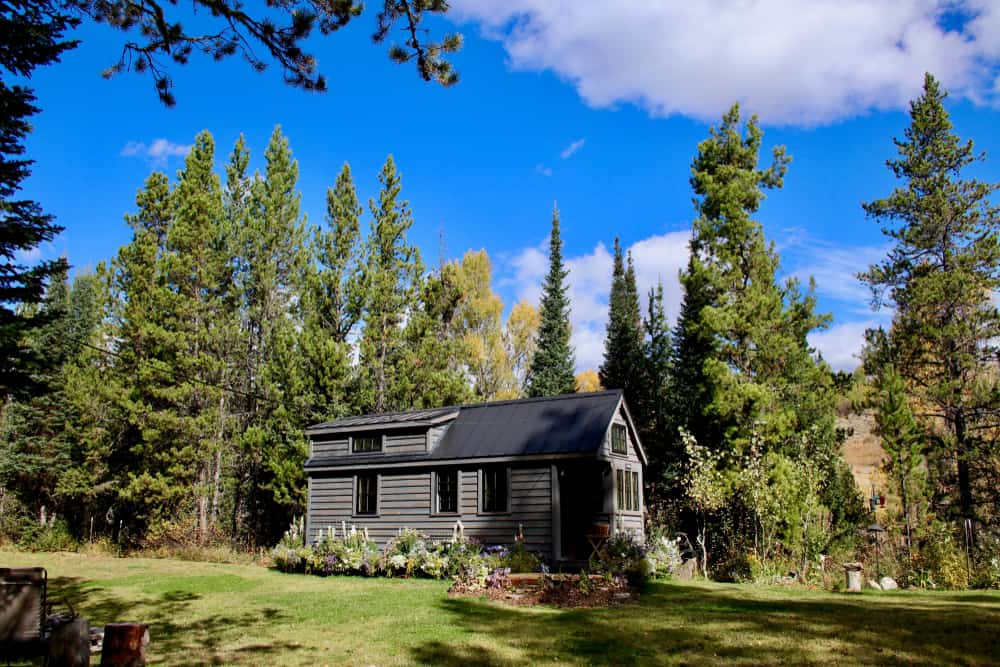
Living off-grid can be a dream come true. You might aspire to full self-sufficiency, or maybe you’re prepping for Armageddon or a zombie apocalypse. Regardless of your motivations, the idea of taking care of one’s own needs — from alternate electricity and water sources to food and entertainment — is growing in popularity.
Read on to discover what it means to live off-grid, as well as what to prioritize if you want to try going this route. Taking the plunge to live off-grid requires a lot more than just packing up and moving to the sticks.
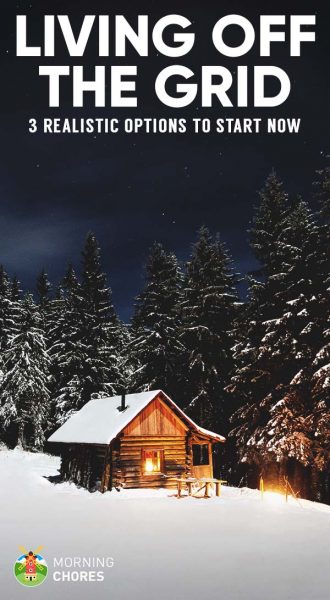
What Does Living Off-Grid Mean?
In its most basic form, living “off-grid” means your home isn’t connected to a local power grid. If the power you use in your home is from a municipal power hub, then you’re on the grid.
You have to pay money to use grid power and there’s an outage at the main hub (or if your local lines are damaged), your power will go down. This can cause a few hours of inconvenience or it can mean several days without water for rural folks whose pumps are powered by electricity.
When you’re living off-grid, it means that you either have a power source of your own, or you’re living without electricity. You might also be disconnected from other municipal lines such as water and sewage. Maybe you have an outhouse and a well, or a septic tank and a rainwater catchment system.
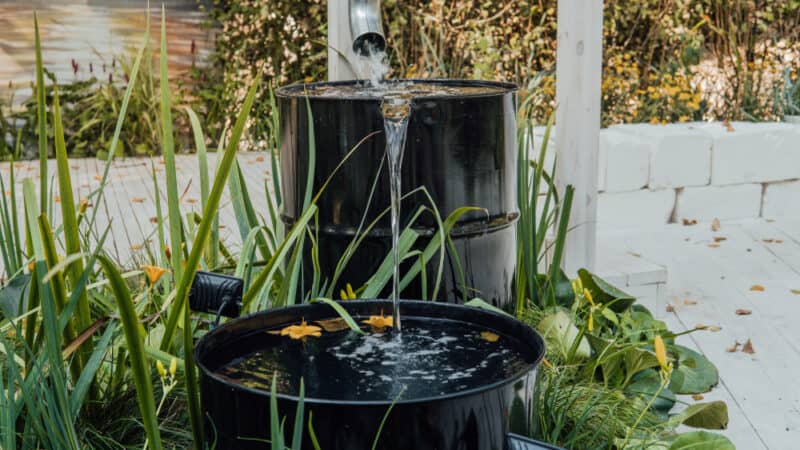
Either way, the resources you require for everyday life are supplied by your own efforts and equipment, rather than anything offered by the local government.
Some people who live off-grid are completely self-sustaining. They grow their own crops, raise livestock, spin and weave fiber to make their own clothing, and basically live like their pioneer ancestors did a couple of centuries ago. Others only live partially off-grid, using alternative electricity sources or growing a fair bit of their own food and medicine.
Your options for off-grid living depend on where you live, how much time, energy, and money you can put into alternate lifestyle options, and how much your individual creature comforts mean to you.
Three Types of Off-Grid Living
There are a few different ways of living off-grid. The three main ways are:

1. Roughing It
This is an extreme form of off-grid living that often comes about after dire circumstances. For example, people whose homes were destroyed after the California wildfires suddenly found themselves living off-grid — not by choice, but because there were no other options available.
Of course, other people decide that they’ve had quite enough of frenetic modern living and would rather go back to a much simpler lifestyle. So they sell or pack up whatever they have and head for the hills.
“Roughing it” consists of living in a shelter without running water or a standard electricity hookup. There’s usually a clean water source nearby, like a potable river or lake (though you’d likely still have to filter the water) and a means of keeping warm, like a fireplace or woodstove.
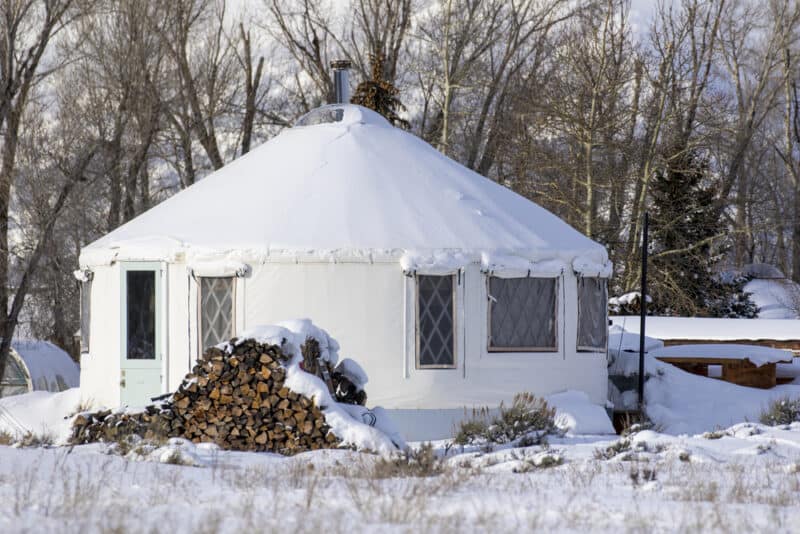
If they decide to have electricity, then they’ll likely have a generator or solar panels, and only use a bit of power when absolutely necessary. Lighting comes primarily from oil lamps and candles, and cooking is usually done in and around the hearth, wood stove, or fire pit.
This is the cheapest way to live off-grid, but as you can imagine, it’s also the most challenging. That said, around 940 million people (that’s 13% of the global population) don’t have access to electricity, so “roughing it” – whether by choice or circumstance – is far more common than most folks realize.
2. Partial Off-Grid Living
This is the type of off-grid living that’s the most attainable and most comfortable for the majority of people. It consists of significantly reducing dependence on municipal resources while increasing self-sufficiency.
For example, let’s say the aforementioned family of four lives in a semi-rural location. They might have a septic system instead of being attached to the municipal sewer system. They may still get water from the local pumping station, but they use rainwater catchment to irrigate their vegetable garden.
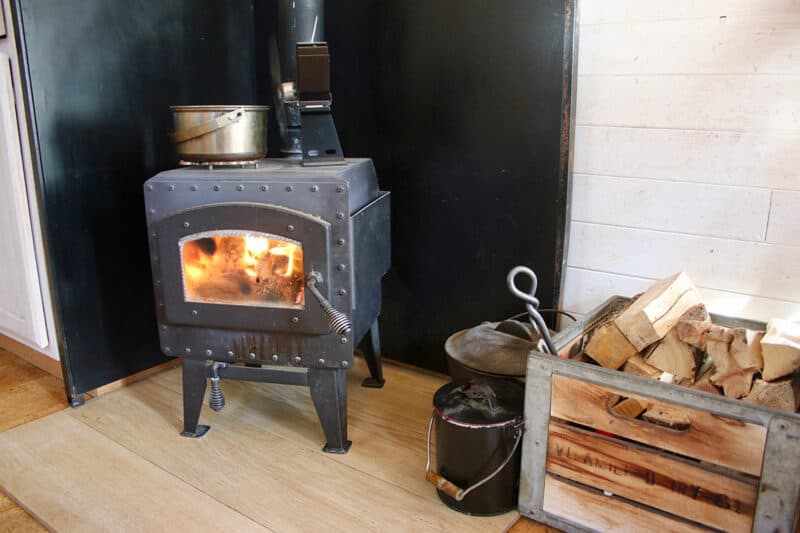
Instead of heating their home with electric baseboard heaters, they might pack a woodshed and use a wood stove. Heck, since they’re heating the house with that stove, they likely boil water and cook on it too.
They might have some chickens for eggs and grow about half of their own food. These folks likely have a cold cellar full of preserves like jams, pickled vegetables, and root vegetables, and hang their laundry on the line instead of using a clothes dryer.
It’s a way to significantly reduce one’s eco-footprint (and annual power bills) while maintaining creature comforts. Many consider it to be the best of both worlds.
3. Comfortable, Fully Off-Grid Living
This requires a lot of money to set up, but if done well it can be incredibly comfortable and rewarding. Furthermore, you won’t be reliant upon any outside resources at all to keep you warm, fed, and hydrated.
People who live fully off-grid are completely self-sufficient. They have several different power sources and plenty of clean water, but they’ll also have tons of modern conveniences. They may have a solar-powered septic system , for example, and electric vehicles that they can charge up themselves.
Some off-grid homesteaders can also supply some or all their own food needs. Raising livestock and growing vegetables are common practices, but what about the other creature comforts we’re all accustomed to? Instead of buying sugar from a nearby store, they might tap maple and birch trees and boil down the sap. Or they keep bees for honey. They might also trade crops or crafts with others in their community.
How to Start Living Off the Grid
1. start planning.
If you’ve been considering living off-grid for a while, the first step is to make a list of your needs in order of priority. This will give you a clear idea of where you’ll need to put in the most effort for off-grid planning.
For example, let’s say you have a family of four: two adults, one child, one teenager. One adult works from home and needs a reliable energy source for at least eight hours a day so they can tend to emails, Zoom calls, etc. Also, consider the electricity required for kids to do their homework and for the family to have movie nights every weekend.
What about water? Are you connected to the municipal water line? Do you have the option to dig a well on your property? If a well isn’t an option, does your area get enough rain or snow for a catchment and cistern system?
Now think about food. Does your stove use electricity or gas? Add that power source to the list. Same with a refrigerator. Will you be able to store food safely in a cold cellar? Or will you need electricity to power a fridge and freezer?
How much food will you need to grow in order to feed everyone in your house, along with extras in case anything spoils in storage or you have unexpected visitors? Will you have livestock? What are their housing and food requirements?
Write down all the things you do on a given day and determine how much energy, water, and food are required to allow things to run smoothly.
2. Find Out the Off-Grid Laws in Your Area
Many people are surprised to discover just how constrictive laws are regarding off-grid living. You’ll have to familiarize yourself with the rules and regulations regarding alternative options in your area. This is more of an issue if you’re trying to live partially off-grid in a suburban or semi-rural environment.
You may think that owning your own property means that you have carte blanche to outfit your home with solar panels and raise some backyard chickens, but every county and municipality has its own regulations in that regard.
For example, you might buy a property and want to plunk a tiny home on it for off-grid living. But some areas have minimum home size requirements or laws against mobile homes as long-term dwellings.
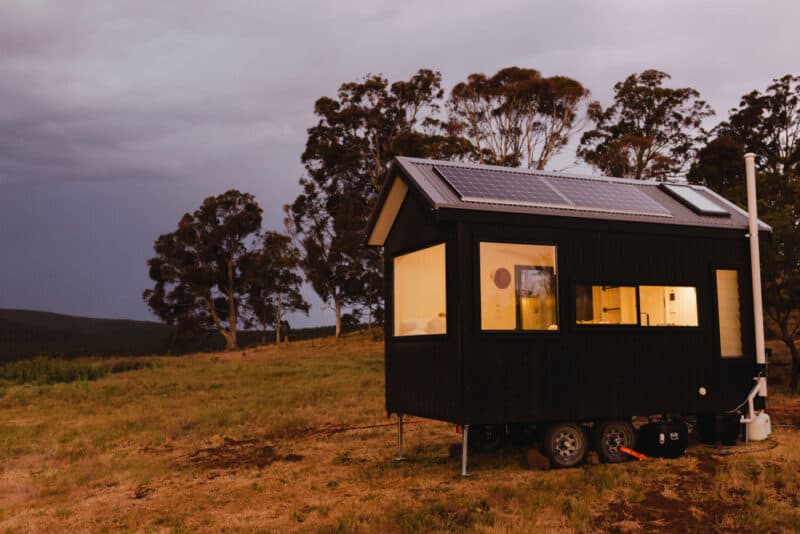
You might come up against issues regarding solar panels, or find that the area has stringent rainwater collection laws. Or let’s say you’ve created a beautiful food garden for yourself, only to have local inspectors come by and tell you that the area isn’t zoned for agriculture.
That’s not just heartbreaking, but is a waste of time, money, and energy. You’ll have to rip up all your food plants and find alternate ways of feeding yourself.
This is why it’s important to familiarize yourself with local ordinances before making ANY plans to go off-grid in your area. You might discover that trying to do so will be next to impossible. You may need to relocate if you’re dead set on living off-grid.
Best Places For Living Off-Grid
If you live in the United States, some of the most friendly states for off-grid living are Alabama, Alaska, Arkansas, Colorado, Georgia, Hawaii, Indiana, Louisiana, Missouri, Tennessee, and Texas. In Canada, your best options are Alberta, British Columbia, Manitoba, New Brunswick, Nova Scotia, Prince Edward Island, Quebec, and Saskatchewan.
Choose an area that has a combination of comfortable climate, permissive building codes, low cost of living, alternative freshwater sources, optimal solar, hydro, or wind power potential, and healthy soil for growing crops.
These options are easier to find all in one place in various US locales than in Canada, but there are ways to live with the northern climate and short growing season as well. You just need to be creative.
3. Consider Your Surroundings
If you’ve found what you think is an ideal location for off-grid living, be thorough while researching the surrounding environment.
For instance, let’s say you’ve found an amazing parcel of land. It’s zoned for agriculture, livestock, and building a dwelling. There’s a clean water resource nearby, and no issues regarding composting toilets and solar power.
That’s great. But what about the local wildlife, both flora, and fauna? If you’re planning to grow a ton of your own vegetables, herbs, nuts, and fruits, which species are around that might prey upon them? Will you lose all your greens to elk, deer, and groundhogs? Are flocks of crows going to obliterate your corn and blueberries?
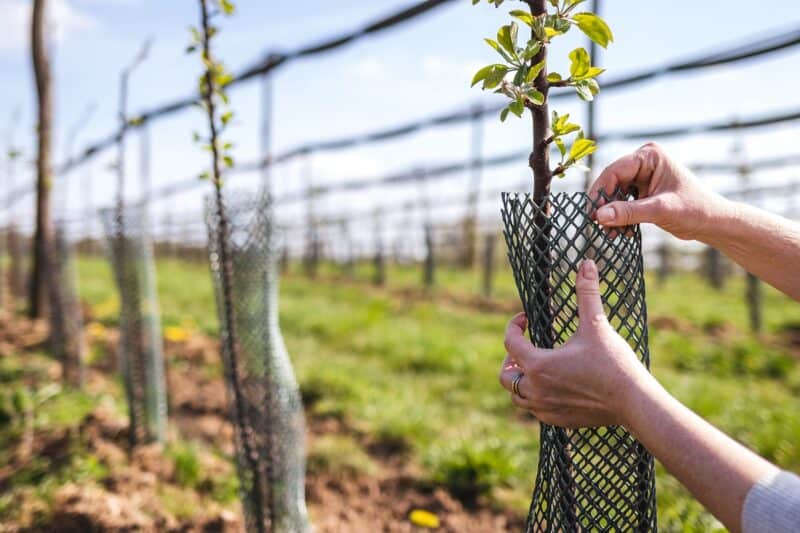
What about livestock safety? Are foxes or weasels going to kill all your chickens? Are there coyotes or mountain lions nearby that might take out your goats? Which predator species are known to frequent that area? You’ll need to find this out to determine whether you’ll need to invest money in guard dogs or perimeter fencing.
If it’s the latter, will you need an electric fence to keep your animals safe from bears and cats? Then you’ll need to take that into account when planning and budgeting for your alternative electricity sources.
4. Determine Your Budget and Get Researching
As you’ve likely determined by reading this far, shifting to off-grid living will require a fair bit of monetary investment. If you want to have autonomous electricity, water, and food, you’re going to have to sort out the means of doing so. That means buying all the equipment you’ll need to live comfortably in your new lifestyle.
Every single idea you have for off-grid living has to be rock solid in terms of planning.
Electricity
Your individual or group needs will determine the type of power equipment you’ll need to buy. For instance, if you live by yourself and prefer books over Netflix, you can get away with only using electricity for an hour or so a day. A family that relies on power for employment and entertainment will need a lot more.
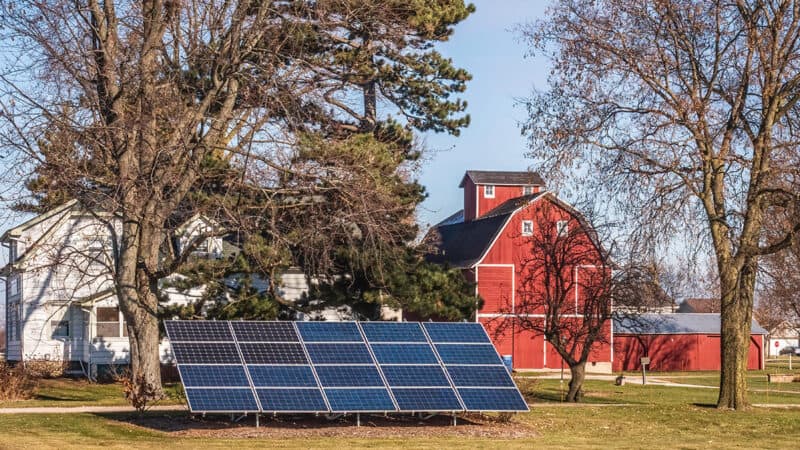
You have three off-grid power options:
- Gas-powered generator
As you can see in our article about these three off-grid power sources , each one of them has pros and cons. Some are more expensive than others, others are more reliable. When you’re doing your research and budgeting, be realistic about how much money you can put into the care and maintenance of these systems.
Will you have enough money to replace outdoor solar panels when and if they are damaged? How about inverters and energy storage options? Budget for gas if you want to run a generator for several hours a day or as an emergency, as well.
When it comes to off-grid electricity options, it’s good to have at least two options. That way, if one of them falters or needs maintenance work, you can use the other in the interim.
While you’re researching alternative energy options, look into what kinds of appliances are compatible with them. For example, can you just use an inverter to power your current kitchen appliances? Or do you need to invest money in a solar-powered refrigerator or oven?
A human will die after a few days without water, so a proper water source is a priority. Since you can live without electricity, you’ll probably want to shift water to the top of the priority list.
Will you have a source of clean, potable water if you disconnect from your local water grid system? Or are you moving to a location where you’ll be able to source it from the land?
If you’re going for rainwater and snow catchment, will you use aboveground storage tanks or underground cisterns ? How much money do you have to invest in those and maintain them if they rupture?
Are there subterranean water sources? How much will it cost to have a well drilled? Will you be able to rig up a manual pump? Or will you need to have solar or wind-powered electricity to keep your water pump functional?
Let’s say you have a river or lake nearby to draw water from. How are you going to filter said water? Through a hand-pumped ceramic filter? Or a larger filtration system to ensure that everyone in your family has enough to drink, cook, and wash with every day?
What are common pathogens that can affect your local water supply? Are there livestock farms uphill nearby that might infect the water table with their droppings? Or an algae bloom in the lake that pops up during certain weather conditions and requires extra treatment to make the water potable?
You have your water options sorted. Now, what about food? Living off-grid usually includes providing as much food for yourself and your family as possible. If you all eat a plant-based diet, then you’ll need to determine how much space you’ll need to grow enough for everyone .
Determine which plants everyone will eat, as there’s no point in growing okra or kale if someone hates it. Then you’ll need to test your soil to see what amendments are needed to make it fertile. After that, budget for the seeds or seedlings you need to purchase.
How are you going to water them? Will you keep rainwater barrels or cisterns near the gardens? Do you need to budget for electricity to power water pumps for your hoses?
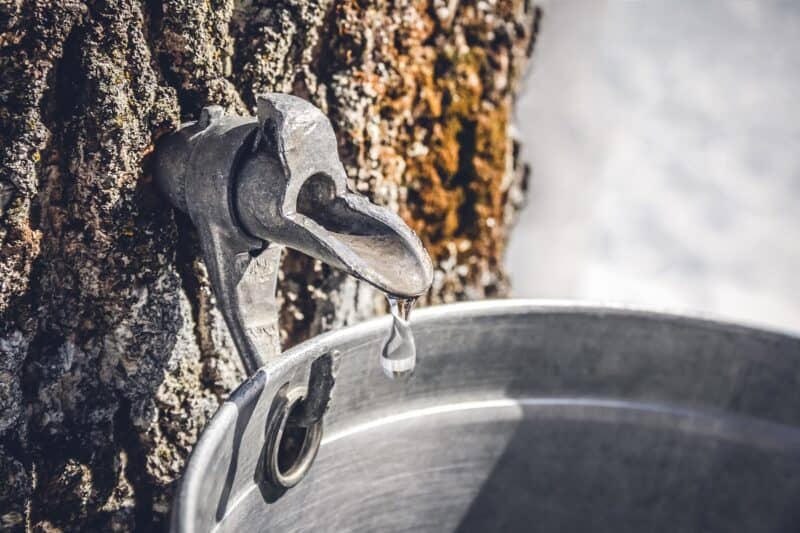
Sort out whether local plant species are beneficial to your off-grid needs. Are there good trees around for lumber and firewood? Can you use them as food resources? Will you be able to gather wild nuts and berries? Tap trees for syrup? Familiarize yourself with as many local species as possible so you know what you’ll have available.
Are you going to raise livestock for meat? Chickens for eggs? What are you going to feed these animals? And how are you going to store the harvest? Will you dehydrate the meat into jerky? Determine whether you need to invest in a solar dehydrator or budget for eight to 12 hours of electricity for each dehydrated batch.
This isn’t anyone’s favorite topic, but it’s a vital one to take into consideration.
How are you going to deal with your family’s daily sanitary needs? Are you going to have an outhouse on the property? If so, you’ll need to learn the local laws as to how far it needs to be from the house, as well as where to situate it so it won’t contaminate the water table.
The same goes for a composting toilet. Will you be able to source the lime or sawdust for it locally? Or will you need to budget for that? Do you have a plan regarding how you’re going to rotate it on a regular basis? How and where are you going to compost the content?
Not interested in either of those? Look into a septic system instead. How are you going to rig up water in order to flush your toilet? What are the local laws regarding how often the tank needs to be emptied? Generally, most areas require the tank to be emptied every 1-2 years for a family home, or every 3-4 years for a vacation home.
Are there local companies that can do this for you? How much do they charge?
If you have to deal with menstrual cycles, you’ll need to think about how to wash reusable pads, or whether you can use catchment cups instead. The same goes for diapers if you have infants or toddlers. Do you have a reliable water source that you can use to wash and sterilize these items?
What about pets and livestock? What are your plans to keep their living areas clean and sanitary? Do you have a composting system in place for horse, goat, or rabbit droppings? If you have dogs, how are you dealing with their leavings?
Start Small, Right Where You Are
You don’t need to sell all your belongings and head out to the woods in order to start adopting an off-grid lifestyle. In fact, you can start to make small changes right now that can lead you to more off-grid options in the near future.
Whether you live in an urban apartment or a semi-rural home, you can start reducing your dependence on the power grid by making a few small changes. Get some portable solar panels and use them to charge your phone, tablet, or laptop. Create a water catchment bucket for your balcony or back patio, and use it to water herbs and small vegetable plants you’re growing on your windowsills.
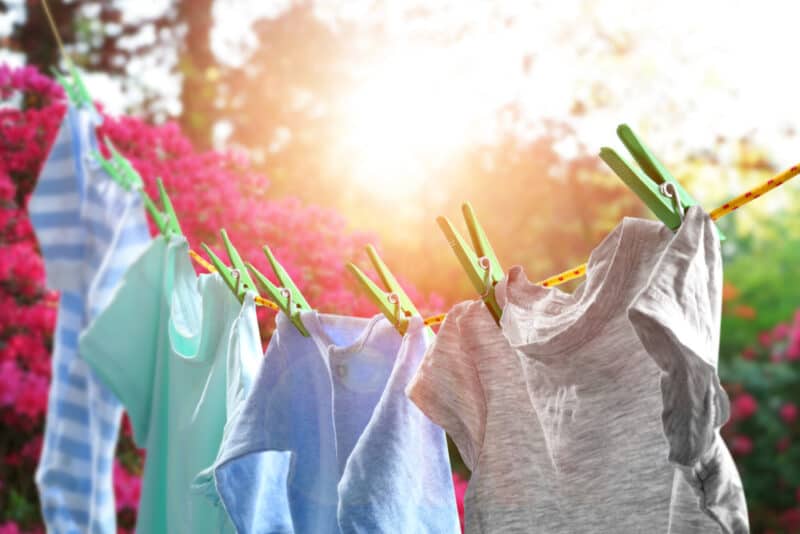
Hang your laundry outside to dry whenever possible: this doesn’t use any power and will do wonders to lower your electricity bill. Do you have a backyard? Get a cistern and rig up an outdoor shower. They’re wonderful, and you’ll be able to start (or end) your day with a blissful wash outside whenever the weather is nice.
Grow as much food as you can, wherever you can. Turn scraps into soups, preserves, and seasonings for other meals. Make your own clothes if you can, use candles in the evening instead of turning all the lights on.
Ease into this lifestyle bit by bit with small changes, while determining what type of lifestyle you really want to have. Once you’ve determined how it is you want to live, you can take firm steps to make that the reality. Just keep making lists, researching the best options for the items you feel that you’ll need, and set money aside to make it all happen.
The Advantages and Drawbacks of Living Off the Grid
The off-grid lifestyle has a lot of advantages and some drawbacks too. They should each be weighed carefully to ensure you make the best decision for yourself and your loved ones.
Advantages:
The main advantage of off-grid living is that you are completely self-sufficient. If the grid power goes out, so what? It doesn’t impact you. If an emergency happens at the local city water plant, you’re still covered. Not to mention all of the money you WON’T be spending on monthly appliance bills.
Also, though going off-grid could require an initial investment, if you choose one of these smaller alternative housing options your investment may not be as large as you might think.
Plus, there is freedom in living a completely self-sufficient lifestyle, and you can’t put a dollar sign on freedom.
Disadvantages:
However, you can’t forget the disadvantages of going off-grid either. You may have to move from your current location because a lot of places won’t allow you to be completely off-the-grid.
You also need to consider the welfare of your children, if you have them. In some areas, child protective services might try to step in if you’re raising children in a home that doesn’t have running water or electricity.
The courts might consider this to be an unhealthy environment for kids and may try to take custody of them. Learn the laws in your area so you can avoid potential trauma and lengthy court battles.
You must consider the investment you’re making if you decide to go with the “modern off-grid” option. It’s not cheap, but you may deem the expense worth it.
Let’s also not forget some of the lifestyle changes you might have to make. If you choose to go totally off-grid without any help from wind, solar, or hydropower, your whole life will change. You will no longer be able to just run to the bathroom for a quick shower, or run water in your sink to wash dishes.
Whichever form of off-grid lifestyle you intend to entertain, we just hope that you find happiness in the process.
Was this article helpful?
What went wrong.
This article contains incorrect information
This article does not have the information I am looking for
How can we improve it?
We appreciate your helpful feedback.
Your answer will be used to improve our content. The more feedback you give us, the better our pages can be.
Follow us on social media:

Celebrating Christmas at Homestead: 5 Ways to Make It More Meaningful

10 Indoor Homestead Skill-Building to Beat the Winter Blues

Free 20-Page Printable Homestead Journal to Boost Your Productivity

25 Practical Indoor Homesteading Hacks at Zero Cost in Less Than 5 Minutes
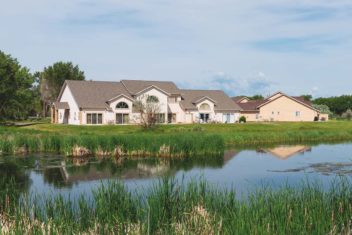
How to Improve Your Landscape Hydrology to Minimize Fire Risks

22 Surprisingly Easy Ways to Save Water That You Can Do at Home

Homesteading While Pregnant – Tips to Help You Overcome Challenges
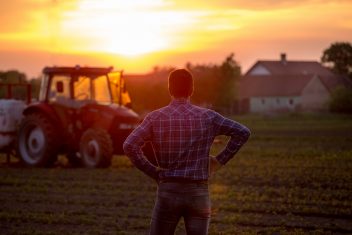
What to Consider When Getting a Tractor for Your Homestead

56 Essential Items for A New Homesteader to Make the Journey Easier
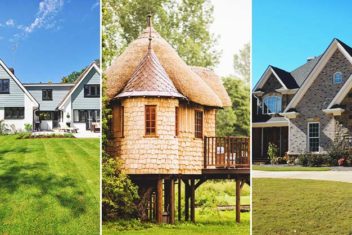
25 Gorgeous Farmhouse Plans for Your Dream Homestead House
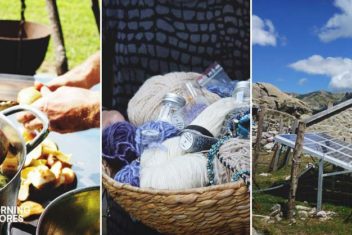
14 Pieces of Advice You Need on Your Journey to Self-Sufficiency
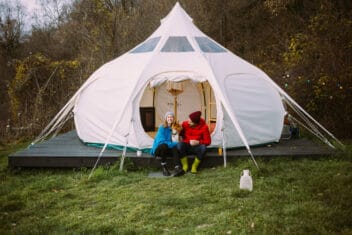
11 Things I Learned While Living in a Yurt
Get the Reddit app
A place to share all of your off-grid technologies, experiences, and advice.
An essay on off the grid living, and my first look into it. Changed my thinking totally
I wrote this paper as an investigative assignment for my english class. I would love feedback on this, whether it be critique or just your thoughts. This was my "first look" at off the grid living, and it is something I plan to transition into in the future. My main motivations are my distaste for waste and consumerism, along with my love for nature and my search for minimization in my own life. Ideas, reddit? Here is the link

- What's New?
- Mark Forums Read
- Today's Posts
- View Site Leaders
- Advanced Search

- Main Category
- Comprehensive writings/analyses
A tale of Energy: Living Off the Grid
Thread: a tale of energy: living off the grid, thread tools.
- Show Printable Version
- Email this Page…
- Subscribe to this Thread…
Search Thread
- Advanced Search
- Linear Mode
- Switch to Hybrid Mode
- Switch to Threaded Mode
- View Profile
- View Forum Posts
- Private Message
A tale of Energy: Living Off the Grid Purpose of this essay The purpose of this essay is to explore the link between concepts such as “living of the grid”, “self-sufficient”, “sustainable” and how they relate to energy and in particular to free and abundant energy. What it means to “live off the grid”? As I began studying for this writing I realized that I don’t really know what “off-the-grid” (OTG) means. The words imply being disconnected from any “grid” and that usually means the main or the national electrical grid. But another common use can referrer to living in a self-sufficient manner without reliance on one or more public utilities. In case of communities, living off the grid would mean having a local water supply, a sewage system (or a waste disposal/recycling system) and providing shelter and food for its inhabitants. On Wikipedia words like ‘sustainable agriculture’, ‘renewable energy’ and ‘self-sustained’ communities are used to describe such communities. Reasons for living off the grid? Based on what I could find online, I compiled a list of reasons why someone would want disconnect from the grid Reduced impact on the environment by controlling the waste and carbon footprint Connecting to the grid may be too expensive when compared with an OTG solution (for remote locations) Reducing living costs by not paying for any utilities Survival in case of major grid failure Protection against the potential collapse of the oil based economy A sense of independence – as opposed to being always dependent on the public utilities (and their maintenance schedules, price policies and general availability) Offgridworld.com lists “happiness” as one of the reasons . Relevant for this essay is: " Removing the burden of mortgages, utility bills, car payments, and living the simpler, easier life appeals to millions of people around the world.[...]They want to be happy. Living off the grid seems like the perfect way to achieve it. " Privacy Living closer to and being much more connected to nature A better chance of not being affected by civil unrest Achieving better physical and mental health Withdrawing your support from things you do not agree with like taxes that fund wars, GMO foods being the only ones available, having to drink fluoridated water, contributing to consumerism, working in companies that are not environmentally responsible, avoiding vaccination or the public schooling system Learning opportunities that you may not have in a city Because celebrities are doing it (see Daryl Hannah) In my estimation, the main motivation for moving off the grid seems to be saving money, but for the purpose of this essay the reasons I want to focus on are those that can be grouped under “saving the planet“ and becoming as independent as possible. What do you need to do to go off the grid? Since I have never attempted to actually do this, I will use as inspiration a writing by a cyber pal that is quite the expert. Also, I am not trying to be comprehensive. I want to sketch the details of what it may look like just enough so you can get an overview. I know there are many solutions to the same problems and depending on how much you want to spend up front you can have more or less comfort and flexibility. To start with, you will need a water source and shelter. A means of heating your shelter during colder times. A way to heat water and to cook food. Some sort of shower and toilet. You may need access roads. If you intent to use any electrical equipment you will likely use solar panels, generators, batteries and related hardware. A small refrigerating unit to store food. A small garden, or access to a community where you can get food in exchange for your services. Water, food and shelter are quite obvious and I will not belabor them. Taking care of your hygiene may be optional, but it seems wise to keep clean if you want to keep healthy. So you will need a shower and a toilet. I know that with training you could do cold showers even in the winter, but you will likely want a way to have the water at least warm. A composting toilet makes sense as it will help with your garden. Roads are also optional, but if you travel often between your shelter and other places, they may save you energy in the long run. The electrical power system could get quite complicated. Solar panels alone work if it’s sunny and they work only with specific types of devices. Those that use direct current (DC). If you need to power devices that use alternative current, you will need an inverter connected to those panels. For night time (or cloudy times) you will need a way to store that solar energy. And here batteries come in handy. And finally, in order to extend battery life and to have power even when the Sun is not shinning for many days, you will need a generator. For the generator you will need some sort of fuel. Usually propane. At this point you may think that you “are set and done”, but let’s consider a few things. The fuel for your generator will eventually be used up and you need to replenish your stock again (more on this later). The batteries have a limited life. Somewhere between a few years, up to 15 years, if you take good care of them. This means you need to know how to maintain your batteries and this is something that you need to do on a regular basis. And regardless of how well you maintain them, you will eventually have to replace them. There is some good news. There are constant breakthroughs in battery life and storage capacity, so in the near future (5-10 years) this may not be an issue anymore. The Solar Cells seem to be the most lasting. From 15 years up to more than 40 years. For the purpose of this essay I will consider that the only damage that could happen to them is to get accidentally damaged. Next is the inverter and related hardware that connects everything together. Most (if not all) of this hardware does not have moving parts, which means it will not wear down from friction. This is another part of your system that has a chance of lasting quite a long time. But sometimes electronic components do break down, contacts get lose or other things happen that may render your hardware useless until repaired. The idea here is that your systems will inevitably require maintenance and fuel. For maintenance you will require tools (that need maintenance themselves, but let’s say they are very good quality). And for fuel and spare parts you will need a way to order them and transport them (or have them transported) to your location. Later on it will become clearer why I keep insisting on these devices and their need for maintenance, fuel and sometimes transport. Off the Grid Life Style Once you have settled in your off-the-grid home (and that in itself is a process), your life style will definitely change. There are of course a lot of advantages, many of them resulting from the reasons why you chose the OTG solution: closer to nature, less distractions, saving money, being more aware and careful with the waste and pollution that you create and there are likely important psychological and spiritual advantages too. But let’s also have a look at the limitations that come with living off the grid. You need to learn how to cook your food on a stove. Washing and keeping clean can be a challenge, especially in cold times. You need to plan ahead for the winter when food may not be so readily available and you will require more fuel to keep warm. Being independent from the public utilities puts a lot of responsibility on your shoulders. If you want water you need to go out and get it! Sometimes you may have a spring nearby that you can tap, but other times you may have to carry it over large distances. Same goes with food. Even if you have your own small garden, you will likely need to supplement that. Living off the grid quite often implies that a lot of effort and time during the day is spent to just maintain the life style and perhaps some to improve it in tiny increments. And your electrical system breaking down can set you back in a big way. You constantly have to stockpile and prepare for the winter time when you will be spending a lot of your resources on just keeping warm. My grandparents have lived for most of their lives without access to public utilities, simply because back then they were not available, especially “up on the hills.” As a little child it would be great fun to live with them for a couple of days and to see how they get by. But the truth is, it was fun because they would shelter me from the hardship of that life style. They would let me play with the animals, run around all over their carefully maintained gardens and basically be more of a noisy happy nuisance than any help. As I grew up, I began to understand the titanic effort that was required to maintain that farm. My grandparents had to constantly work, from before sunrise until sunset to take care of it all and to prepare for the winter time. Sometimes it would be a drought or it would rain too much. Or a land slide would damage the house. Sometimes they had to simply endure hunger. The only resting times were in winter, when you would stay mostly indoors consuming from your reserves and planning for the next year. Their bodies showed the signs of their hard work, taking the shape of the tools they used and of the repeated burden they would have to carry. Those country folk saw that as “normal” and “easy.” They were born into it and that was what “you had to do.” But I was coming from watching big machinery move hills in a couple of weeks… so looking at people using their hands and backs to do such work did not seem normal or easy. I look at living off the grid in a similar way. A lot of energy is spent into simply surviving and maintaining the life style and there is very little surplus that gets stockpiled for the winter. Some may argue that this is desirable, deliberate, and that it will save the planet. It definitely opens your eyes to various issues that are completely invisible in the city life. We will come back to this argument a bit later. The Energy Game Let’s look at living OTG from a different perspective, from an energy perspective. And for that I will have to introduce the “Energy Game”. I began to think in terms of “where is the energy coming from” and “ energy surplus ” after reading most of Wade Frazier’s work and particularly his “ Big Essay ”. The following understanding became clear: life is mostly an energy acquisition process. An organism needs to acquire enough energy to power its internal processes, to defend against becoming an energy source to other organisms and, if it has enough energy surplus, to reproduce. Energy is also spent in the simple process of staying alive, in a fight against entropy. The energy surplus becomes the key indicator if a species will survive or go extinct. The energy surplus governs how a species will develop. In every moment an energy decision needs to be made: will I use this energy unit to run/defend, will I preserve it, will I use it to forage for more food (energy), will I use it for growth, will I use it for reproduction? In an environment with limited energy availability, these decisions become very important with little room for “mistakes.” So energy surplus increases an organism’s chances of success. Without energy surplus, that organism and its species will go extinct, giving way to other life forms that can create that surplus where the former could not. The same idea can be applied to the human species from the individual to the entire population. Of course, the processes of energy acquisition, storage, and creating surplus are much more complex and happen at many levels, but they are still present. So if someone goes OTG to save money or to save the environment, they are playing the energy game, but at different levels. As I’ve sketched out above, a lot of the activities that happen when you live off the grid have to do with acquiring and conserving energy. Most processes revolve around the physical body’s survival: acquiring water, food, shelter, and warmth. What about Energy Surplus? There is not much of that. Besides the mental attitude of “live with less” (for various reasons) there is also the fact that most energy is spent on just maintenance and staying alive on a daily basis. Sustainable and self-sufficient? It is now time to look more closely at two of the reasons for living off the grid: it’s a sustainable way of life and you are self-sufficient. Both are very interconnected, so let’s consider them together. If you don your “Energy Game” lenses you will quickly conclude that this is not sustainable nor is it self-sufficient. Why? Simply because we are currently using a finite energy source at a rate much higher than it can regenerate. Usually the first counter argument to this is solar power, wind power, and/or geo thermal power. They are renewable and free, right? Look at the chart below to understand what we are actually using. I got the data from U.S. E.I.A. to create this chart. Even if the data is not extremely accurate, it still gives you a general idea of what is going on. And I chose the US because they have a large economy and I could easily find this data. I also acknowledge it may be somewhat different for Europe. (click to enlarge chart) The main point to take away from this chart is that the main energy sources are fossil fuels and nuclear power. And keep in mind that this chart shows electricity only . It does not include the energy used for example in transportation (cars, trucks, airplanes, ships) that use fossil fuel. So the percentages for fossil fuel in the overall energy usage are much higher. Why does this matter for those that are going OTG? Because this connects with the first part of the essay where I wrote about what you need for living off the grid. The very short answer is that you need “The Grid”. And now I will expand on that. Take for example the Solar Cells. They are usually made from crystalline silicon . This is a semiconducting material that is used in thin slices (called wafers) between 160 to 240 micrometers thick. This is not something that you can do yourself in your off the grid shelter. You need “The Grid” to make them for you. Think about what that means for a minute... Minerals need to be mined, transported, refined, sliced into very thin and precise layers then put together to create a cell and then more cells will create a solar panel. How much energy do you think was put into that process? Keep in mind that you have employees to feed, taxes to pay, transportation and storage, the profit margin for whoever creates these. Don’t forget the waste materials that are created and the cost of recycling and the pollution from the chemicals used and from transportation. You also need to include the factories that have to be built to create these cells in an industrial process and all the connected utilities and other factories, tools, and precision instruments that are required in the production and distribution of the solar cells. Also add the cost in time, resources, and human creativity that was spent to experiment, discover, and make market-ready these devices. I know that you can create yourself some solar cells. They may not be as efficient in converting energy, but at least you can manufacture them off the grid. It turns out that is not as easy as it sounds. Beside the technical knowledge and skills that you would need, you also require some raw materials, measurement tools, precise instruments and an energy source for the entire manufacturing process. Not to mention that you need to keep yourself alive while building these, so you are also an energetic cost. I am not trying to be picky or to exaggerate, but just being alive and moving about consumes energy and you need to factor that in when you use your body to build something. I should also mention that you need to consider what kind of power level will you be able to get from a “do it yourself” solar cell, compared to your electrical power needs. As complex as the solar panels are, if built right, let’s assume they will last you more than 50 years. That is still far from sustainable, but let’s consider that “long enough”. Next are the batteries. The same thought process applies for the acquisition of the raw materials, transportation, research and development, manufacturing and distribution. But here you have the added cost that even if you take good care of a battery you will have to replace it after 15 years at best (or just a few years at worst). What will happen with the old lead-acid battery? Who will support the energetic cost of recycling that in a safe and responsible way? Can it be done off the grid? Is it sustainable? Now add in your inverter, your tools, your fridge, your clothes, your farming equipment, your stove, your pans and generally any object that you will need but you it can only be manufactured in a factory where high pressure and high temperatures can be achieved, and high precision tools and instruments are available. What is the energetic cost of that? Your generator, that you will have to use when it is cloudy for a long time, needs fuel. That usually is propane. Propane is a byproduct of refining natural-gas or petroleum. It can hardly be called renewable or sustainable. The generator causes noise pollution and CO2 emissions. Also the fuel for it has to be constantly stockpiled. What is the energetic cost of that? In some cases wood stoves are used. In this case there is the cost of acquiring that wood (chopping, chain sawing, transportation and so on). But there is also a hidden cost of cutting down trees to use as fire wood, construction material or simply to clear the way for a new settlement. There are environmental impacts for such actions. You need to add those to your energetic cost as well. You need to really consider if copping down wood is sustainable. Looking at our history, it is not. And it is not only the tree that is cut down, but entire ecosystems that evolved around that tree are disrupted. If you want to use a phone or a computer, then we need to take the precision work and energy requirements for manufacturing to a whole new level. And that for sure can only be done “On The Grid”. I hope it is clear by now, that when you follow the “energy trail,” you realize you are never really living off the grid. Yes, you may not have a direct wire connection to the national electrical system, but every tool that you use, every solar cell, every pound of propane, and every email that you send, connects you to the grid. Going OTG requires the grid to remain in place. And it is neither sustainable nor self-sufficient. Without the grid, the current solutions would grind to a halt in 10 years or less, when reserves dry up, batteries stop storing charge, and equipment breaks down and there are no means to repair or replace. This is still a very high level overview of the issue. It does not include medical care, research work, exploring the arts, child care, education, machinery manufacture, or protection against natural disasters like droughts, floods, tornados, landslides and so on. Those too have an energetic cost. Now that we had a look at the real and comprehensive energetic cost of living off the grid, what about the Energy Surplus? In my opinion there is none. Not when you consider the real costs. Indeed, you may manage to have a personal daily surplus when all the maintenance activities and chores are done. But part of that needs to be saved for the winter in some form, another part needs to be reserved for things like singing or playing with the children. But most importantly, a huge part needs to be put back into the grid, for your propane, for your tools, for your replacement parts, for your transportation, for your communication and for your health care. There are some tribal communities that live in their own “mini-grid”. They are relatively sustainable. They manage to have a very low energetic footprint and that allows for some energetic surplus. But is this the solution for the future? Returning to tribal life? To me, the very idea of living off the grid looks like the symptom of a system that is dying. Like the very last resort of self-preservation for a little longer, while we exhaust the dwindling resources. Yes, it may postpone the end for some time, but in the big picture, is too little too late. Going OTG can also be likened to hibernation in some mammals, where the metabolic rate is greatly reduced over a long period of time. Hibernation helps mammals survive in the season when the cost of acquiring energy is so high that there will be no energy surplus possible, so survival becomes unlikely. By observing the difference between the normal state and the hibernation state, one more thing becomes obvious, and that is quality of life. There are some things that you simply cannot do while the body is hibernating. So my assumption is that in the normal state life is much more fulfilling. And in that sense, I do see tribal life as “backwards” and not living up to our full potential. (However I don’t advocate forcing our “civilization” on them ). The comfort brought about by the energy surplus in the “connected world” has created the opportunity for great abuse of the planet, the environment, and our fellow humans. But it has also created the opportunity for greater freedom to pursue arts, to go beyond our concern for survival, to express compassion and to explore the inner and outer space. I don’t think this kind of flexibility can be achieved in a tribal setting, but I will give a nod to their understanding of and closeness to nature. It is about having options. With energy surplus you can always choose without much concern how to spend your energy next. With little available energy your options become very limited to the point where murder and other “dark path” activities don’t look so bad after all. But all is not lost, and the potential for “Heaven on Earth” does exist. A different approach? Since energy surplus is really the key to true abundance, then instead of going into austerity (hibernation) mode could we perhaps look at alternative sources of energy? And by alternative I don’t mean solar, wind, wave, or geo-thermal energy. I mean a radically different source of energy that is sometimes called Zero Point or Free Energy. I will acknowledge that Free Energy (FE) is a misnomer, because energy is likely at the basis of all that is, but I will use this term for that energy source that is infinitely abundant and it can be tapped and put to use with little to no impact to our current environment. Now imagine what this implies. That entire chart about electricity production would become obsolete. There would be no need for coal, gas, or nuclear power. There would be no need to chop down trees or destroy habitats to make room for us, humans. With Free Energy, almost all of the reasons behind living off the grid would become pointless while some of them would be effortlessly taken care of. First of all, there will no longer be any centralized grid to disconnect from. The FE field will be tapped in a decentralized way, where it is needed. Eliminating the energy transportation infrastructure as well. Big power plants (nuclear, thermal and hydro) would be dismantled. Freeing space for human living or just returning it to nature. The issue of “survival in case of grid failure” would be solved by design. You will also get your independence with a decentralized energy production. And since everyone has always more than enough, if it should happen that there is a malfunction at one location, you can tap for free the next one closest to your location. Yes, no meters required. Remember the costs of cleaning up the waste? Recycling the batteries? That is usually a hidden cost that we put on the shoulders of future generations so that we can enjoy low prices today. Abundant energy can solve that issue virtually overnight. The reason we create waste and we need concepts like “recycling” is because we don’t have enough energy in the first place to do the job properly. To have processes that do not create any waste, but simply the raw materials are returned for use in different other products or reduced to basic elements. And with enough energy you can create durable materials that no longer break down. This means no recycling would be required. The concept of privacy would also be radically changed. In an environment with scarce energy there is a tendency for each organism to protect their niche. And privacy is a tool to defend against energy predators or to stockpile energy at the expense of others. With energy surplus such concepts are seen as non-sense. There would be no reason to stockpile or hide away something that everyone has plenty of! Privacy would become more like “intimacy” or “preference” and that would be naturally respected because you take away the reasons for invading ones privacy. Wars would go away too. Despite the façade, the root cause of all wars is energy acquisition. It is the fight for survival in an environment with limited resources. Make scarcity obsolete, introduce abundance for all, and conflict serves no purpose anymore. As some things will be rendered obsolete, other things will be enhanced by the use of Free Energy. Connection to nature. We will no longer have any reason to exploit our environment. Or to see it as the enemy that needs to be conquered. You could much easier hug and love a tree if you know you don’t have to chop it down later for fire wood or for furniture. There would be no point to have Zoos or any form of animal captivity. I think that our relationship to nature will change in ways that are hard to imagine for us today, when now we have little choice but to burn it down as an energy source or to make room for our living. Physical, mental and spiritual health. Much of our “dis-ease” is a reflection of our ways of life. The food we eat, the thoughts we think, and the emotions we feel. And much of that is created by constantly being in survival mode, on the lookout to grab your share from the limited pie of resources. Provide nourishing food, fresh drinkable water, clean air, and shelter for all, and the source of most of our ailments ceases to exist. Free Energy can make that possible. The humans have evolved with nature, as part of nature, and there is a symbiosis happening. It is very likely that with abundant energy there would be no need for farms, as we have them today, where animals and plants are forcefully bred as our energy source. Medicine will also change. Because of profit motivation, in the current scarcity paradigm, medicine has a vested interest in sickness and no interest in health. It has to take away the symptoms, but it needs the cause to stay, so that it continues to make money and survive. When money is no longer an issue, medicine will truly become health care and it will mostly be prevention or enhancing our symbiotic relationship with other beings. Happiness was quoted in the introduction as one of the reasons to live off the grid, because of the simple life style and removing the burden of having to pay the bills and mortgages or living in a polluted environment. But if you are looking at the energetic cost, you are not really saving that much. Bring abundance into the picture and you have the flexibility to choose the life style that you want. Bills and mortgages no longer make sense, and pollution would be the very first thing to clean up. Free Energy would open the doors for exploration, for play, for creativity, in ways that we did not see before. Creation and innovation would be motivated by joy, and not by fear of not surviving the next collapse of the grid. The schooling system would cater to the real needs of the young mind and would no longer have any interest in creating obedient drones. Ownership would no longer make sense and would likely be replaced by stewardship. The concept of family would be all inclusive. It would no longer matter which ones are your biological children, you can take care equally of all of them, as there is no added cost, no fear of lack. In closing, I like you to take away the idea that Living Off the Grid is not really a solution to what we are currently facing. A much more radical approach is needed. An approach that is based on abundance and the wellbeing of all. And that abundance can only be achieved with an energy surplus. So the solution really lies with supporting and bringing forth the many alternative energy solutions that have been superseded in the name of profit and games of power. Whenever you look at an issue that needs resolving, don your “energy lenses” and trace the energy flow. You will get a much clearer picture of what is going on and you stand a much higher chance of seeing the root of the problem instead of hacking away at the branches, feeling like you are doing something, but not really accomplishing anything in the long run.
Last edited by Ilie Pandia; 04-24-2015 at 03:55 AM .
Hi: It is with great pleasure that I make my first significant response to Ilie's essay. That essay is exactly that kind of writing that I want to see in this forum. Ilie's essay was partly inspired by Darren's post on living off-grid . These are very worthy topics. The desire to lessen one's ecological footprint and to reduce one's participation on our current rapacious system is definitely a step in the right direction, and Darren has been some of the "boots on the ground" for such efforts. As Ilie noted, there is also a desire to be independent, which motivates many off-the-grid people. One of the most common inquiries that I have received over the years on the FE issue is if I knew of an FE technology that people can use to live independently in the wilds of the Americas, from tundra to tropical rainforest. The Americas and Australia are underpopulated compared to Eurasia and Africa, largely due to the greatest demographic catastrophe in the history of Homo sapiens , so those "independence" fantasies of European " pioneers " have been around for centuries. As Ilie astutely pointed out, such sustainable and self-sufficient fantasies, are just that, fantasies. The reality is that unless you are living at a Stone Age level of technology, your lifestyle is not sustainable to any significant degree. People such as Darren, even though he lives off grid, are highly dependent on the fossil-fuel powered industrial economy for their existence. They import energy-and-technology-intensive goods to their remote locations from industrialized society and try to live independently, but without those goods, their "live in the woods" lifestyles would be impossible. As Ilie also noted, such people, even though the industrial economy made their off-grid efforts possible, were also pushed down the gradient of scarcity and lived like farmers, with their existence largely one of hard work from sunup to sundown, and praying that their harvest was a good one and the weather was benevolent. It is really a new form of peasantry, living on the edge of austerity. It really is no solution to humanity's pressing problems, and Darren's cognitive dissonance continued to mount over the years until it reached a breaking point during his midlife crisis. But Darren's heart, like Ilie's, has always been in the right place, which is what I seek most of all , and Darren eventually found my work, which gave him new hope for the kind of world that he has longed for since childhood. It is certainly feasible, but not under the current off-the-grid paradigm. What was really neat about Ilie's essay was his understanding of the energy budget that all life faces, and how what humans are doing is little different, fundamentally. If we have a healthy energy surplus , life is good, and that has characterized all golden ages in the history of life on Earth and the human journey, but when riding the ragged edge of a thin margin, life becomes difficult and austere, and any mistakes can mean suffering and personal catastrophe. This will not be my only response to Ilie's wonderful essay, but I wanted to get the ball rolling, and I look forward to many such essays by choir members in the coming years. Time to go hiking. Best, Wade
Last edited by Wade Frazier; 06-07-2015 at 05:58 AM .
- Private Messages
- Subscriptions
- Who's Online
- Search Forums
- Forums Home
- The Purpose of this Forum
- Chapter Discussions
- Consciousness
- Love/mystical
- Its energetic basis
- Money, banking
- The rackets
- Scarcity versus abundance
- Intelligence/sentience
- Visionary Writings
- Forum Member Introduction
- Manifesting Free Energy
- Miscellaneous
- FAQ and Terms of Membership
Posting Permissions
- You may not post new threads
- You may not post replies
- You may not post attachments
- You may not edit your posts
- BB code is On
- Smilies are On
- [IMG] code is On
- [VIDEO] code is On
- HTML code is Off
Forum Rules
- A Healed Planet - Forum
Academia.edu no longer supports Internet Explorer.
To browse Academia.edu and the wider internet faster and more securely, please take a few seconds to upgrade your browser .
Enter the email address you signed up with and we'll email you a reset link.
- We're Hiring!
- Help Center

Off the Grid, An Introduction

Related Papers
PoLAR: Political and Legal Anthropology Review
Gökçe Günel
This essay reviews recent work on energy studies.
Japan Forum
Paul Manning
This article approaches the writings of Lafcadio Hearn, an exotic, wandering, homeless “ghost of no place” (Nabae 2014), born in Greece, raised in Ireland, who became a fiction writer famous for turning both New Orleans and Japan into weird, haunted, literary landscapes. Hearn always insisted his writings should be examined in their own terms as a transnational, transmedia and trans-species aesthetics of “weird” contact between worlds. There are three kinds of contact between worlds: transnational, a traffic in spirits across spaces in an orientalist imaginative geography; transmedia, as the monstrous qualities of ghosts, goblins and fairies bleed into and across media forms; and trans-species, as monstrous qualities moves across species, between humans, goblins and insects. The forms of representation of monsters take on the properties of the monsters they are most associated with, ghostly photographs and colorful fairylands, that I will call monstrous media. At the same time, this transnational and transmedia aesthetics of the weird moves from images on Japanese fans to the wings of insects, from Japanese cemeteries to insect ecologies and Buddhist cosmologies in which humans are reborn as goblins, insects, or hybrid goblin-insects
Rubén Cuéllar Laureano
Mojtaba Heidari
Hiếu Nguyễn Xuân
Sasi Ericadu
Logan Sisley
Electifying Anthropology: Exploring Electrical Practices and Infrastructures
Thomas Yarrow , Simone Abram , Brit Ross Winthereik
What kinds of expertise and knowledge relate to electricity, and where is the space for alternative voices? How can the new roles for electricity in social and cultural life be acknowledged? How can we speak about 'it' in its own right while acknowledging that electricity is not one thing? This book re-describes electricity and its infrastructures using insights from anthropology and science and technology studies, raising fascinating questions about the contemporary world and its future. Through ethnographic studies of bulbs, bicycles, dams, power grids and much more, the contributors shed light on practices that are often overlooked, showing how electricity is enacted in multiple ways. Electrifying Anthropology moves beyond the idea of electricity as an immovable force, and instead offers a set of potential trajectories for thinking about electricity and its effects in contemporary society.
Antonio Cristofaro
Loading Preview
Sorry, preview is currently unavailable. You can download the paper by clicking the button above.
RELATED PAPERS
Almanac for the Beyond
Jaimey Hamilton Faris , Rodrigo Nunes , Louise Emily CARVER , Jamie Allen
Morgan Charles
Eduard Popa
Brent Ryan Bellamy , Logan Sisley , Kate Hoffman
Hikikomori Feral
Hadil Ahmed
Marta Jorrin
Trevor Hogan
The World to Come: Art in the Age of the Anthropocene
Natasha Myers
Duke University Press
Kregg Hetherington
Imre Szeman
Harun Yahya Books
Leo Coleman
Keywords of the Anthropocene
Michael Byrnes
Volume 20: Issue 1
Kees Lokman
Andrew Targowski
Iyan Al Iqbal
“Hoping for catastrophe: epidemic threat and political ambition in colonial Macao’s early attempts at urban sanitation (1885-1900),” Traditional Dwellings and Settlements Review, IASTE, 30.2, 33-46
Regina Campinho
European Association of Social Anthropologists
Jonas Tinius
Eduardo Karol
Eco-media Events in China: From Yellow Eco-Peril to Media Materialism
Ralph Litzinger , Fan Yang
Thomas Hauschild
Kasia Jozwik
siddhesh Gaikwad
Arte y Políticas de Identidad
José Manuel Bueso Fernández
Julián Katari
Nathan Porath
Polina Manolova , Katarina Kušić , Philipp Lottholz
Richard M Logsdon
Engineering Studies
- We're Hiring!
- Help Center
- Find new research papers in:
- Health Sciences
- Earth Sciences
- Cognitive Science
- Mathematics
- Computer Science
- Academia ©2024
JavaScript seems to be disabled in your browser. For the best experience on our site, be sure to turn on Javascript in your browser.
- My Wish List
Your Basket
This site is protected by reCAPTCHA and the Google Privacy Policy and Terms of Service apply.
- British Museum Books
- World of Art
- Art Essentials
- The Illustrators
- The Big Book series
- If I had a… series
- Advertising & Business
- Ancient History & Archaeology
- Architecture & Landscape Design
- Biography & Literature
- Craft, Practical Arts & Hobbies
- Fashion & Jewelry
- General History
- Mythology, Philosophy & Religion
- Natural History & Science
- Photography
- Popular Culture
- Author Interviews
- Upcoming Events
- Past Events
- Authors
- About Us
Off the Grid: Photo Essay
'Off the Grid' is the ultimate escapist collection of self-sufficient cabins and retreats in the world’s most stunning and inaccessible locations. Take a look at some of the most innovative off-grid homes from the book.
One of the greatest delights of off-grid living is getting away from it all. Advances in home-generated renewable energy have allowed opportunities for escapism and total immersion in natural surroundings. Off the Grid: Houses for Escape is the ultimate escapist collection of diverse self-sufficient cabins and retreats in the world’s most stunning locations, from snowbound cabins in the far Northern Hemisphere to coastal retreats that can only be accessed by boat.
'Organic farmstead', Spain. Tucked into its sloping site, the farmhouse offers semi-private guest accommodation on the lower floor, private family space at the top and more social areas in between. Image credit: Richard Powers
An Organic Farmstead for the 21st Century Henning Larsen Architects: Granja Experimental Alnardo, Valladolid, Castilla y León, Spain
The winemaker Peter Sisseck has long been committed to biodynamic methods of production. This holistic organic philosophy has governed his work in Ribera del Duero, Spain, where he produces the celebrated Dominio de Pingus from his own vineyards. As part of an all-encompassing approach, Sisseck decided to create his own sustainable farmstead, which would allow him full control over the formulation of the organic compost that nourishes his vines, as well as providing him with a new home.
Having worked with Henning Larsen Architects on a bodega for his other label, PSI, the Danish-born Sisseck asked the practice to design a farmstead on 20 hectares (50 acres) of land in Castilla y León, northwestern Spain. Given the remote setting, well away from mains services, the farmstead was designed to be self-suffcient and off-grid. ‘It’s been an ambition to create a farm for quite some time, and now that it’s up and running it’s proving to be one of the best decisions we ever made,’ says Sisseck. ‘We are using the old methods of wine production and it’s really important for the vineyards that we stimulate them in an organic way, because you need a lot of micro-organisms in the soil. Here we can guarantee that the compost is 100 per cent organic, which is important for the quality control of our vineyards.’
The farm has its own water source, as well as the facilities to harvest and store rainwater, and a solar array near the farm buildings provides electricity. The chief source of heat is a biomass boiler, which is currently fed by wood pellets but could be fuelled by cuttings from the vineyards in the future. There is also an independent back-up generator for use in the winter, if required.
‘From a purely practical point of view, it was important to be self-suffcient,’ says Sisseck, ‘because the infrastructure here is non-existent. We could have brought in an electrical line, but the connection is so far away that it would have cost a lot of money. We also tried to use local materials, and built the house with local artisans. It is a personal project, but also a wonderful collaboration with people who have a real talent for architecture and landscape design.’
'Organic farmstead', Spain. Important living spaces such as the sitting room/library flow onto elevated balconies, to connect with the capitvating views of the countryside beyond. Image credit: Richard Powers
'skyhut', wales. the hut has everything a home might need, all in one compact space, reminiscent of a crafted yacht cabin. image credit: anthony coleman, 'skyhut', wales. in the evening the opening roof turns the house into an observatory, framing a picture of the night sky. image credit: anthony coleman.
Sleeping Under the Stars Waind Gohil + Potter Architects: SkyHut, various locations, Wales, UK
One of the legends that surround the mountain of Cadair Idris suggests that anyone who sleeps on its slopes under the stars will wake up as either a madman or a poet. Some believe this legend is linked to an old tradition whereby poets and bards would camp out on the mountain seeking inspiration for their work. Such ideas have informed the evolution of the SkyHut, an off-grid cabin whose unfolding roof turns it into an observatory for gazing at the stars.
‘The SkyHut is designed to provide a unique place to experience the Welsh sky, with doors and roof that open fully to transform the hut into a glamping observatory,’ says the architect Phil Waind of Waind Gohil + Potter (WG+P) Architects. ‘The idea of a retractable roof is particularly relevant to Wales, the country with the highest percentage of “international dark sky”.’
‘The SkyHut is highly engineered, as it’s no easy task to design a space that is transformable, transportable and off-grid,’ says Waind. ‘We had to ensure that the actuators could take the weight of the roof and that the roof panels did not bend or twist when being opened. At the same time, we had to ensure that the interior would be totally weathertight when the roof was closed.’
The building itself is clad in corrugated metal panels that echo the simple outline and materiality of local farm buildings. A line of high clerestory windows between the panels and the roof suggests a modern twist and introduces light, while also accentuating the roof itself. Birch-faced plywood was used for the interior joinery, which includes a bed, cupboards and other simple facilities.
The SkyHut is fully insulated and off-grid, with two roof- mounted solar panels for electricity and warmth generated by a wood-burning stove; there is also a composting toilet and a sink. Water is stored in a separate container, brought to the site, while additional communal facilities on a campsite model – such as barbecues – can be provided when the cabin is used in combination with other retreats.
A hybrid home somewhere between permanence and the tent, the SkyHut offers a way of connecting with the natural surroundings and the night sky. ‘We wanted to create a space that was functional and catered to the needs of its inhabitants,’ says Waind. ‘But we also wanted their stay to be fun and provide a unique experience. We have given the user the opportunity to transform the space at the ick of a switch and, being off-grid and transportable, that unique experience could be anywhere.’
'Skyhut', Wales. The SkyHut is a hybrid of cabin and caravan, with retractable doors and a folding roof that open the retreat to both land and sky. Image credit: Anthony Coleman
'bridge studio', canada. 'the bridge studio' is one of several small, sculptural artists’ retreats on this sparsely populated island. image credit: bent rené synnevåg.
Apostrophes in the Landscape Saunders Architecture: Bridge Studio, Deep Bay, Fogo Island, Newfoundland, Canada
The ecology of remote and extreme places can often be summed up in the phrase ‘fragile beauty’. These are places where flora and fauna work hard to survive, and where the ecosystem is finely balanced. Fogo Island, off the northeastern coast of Newfoundland, is a good example.
The island was historically a base for fishermen, who pushed out into the open waters of the Atlantic in search of cod. Today it is best known for its artists’ residency programme, supported by the Fogo Island Arts corporation, which is in turn funded by a foundation established by two entrepreneurs who grew up there.
An important element of the residency programme is the provision of six sculptural studios on different parts of the coast, designed by the architect Todd Saunders. Each was designed individually in response to the specific conditions of its site. But they do have elements in common: all are modest in scale, sensitive to the environment and self-sufficient. They play with ideas of elevation in various ways, providing lookout posts facing the water, while splicing contemporary sculptural forms with inspiration from vernacular fishermen’s huts and storage sheds. Together, they form a family of buildings that share a common language.
‘The studios are like apostrophes on the landscape, and they can be viewed either from a distance or close up and from many different angles, so it was really important that they weren’t all the same,’ says Saunders. ‘There are a lot of hiking trails on the island, and as you walk past the studios they seem to change in form and shape. They are extremely sculptural.’ Given the remote nature of the site, as well as of the island itself, the studios had to be fully off the grid; most are designed for daytime use, but sometimes in some of the six studios (where there’s enough space) artists have the option of staying the night. The building materials had to be light enough to be transported by hand, while the specification of insulation and glazing had to be high. Most of the studios are raised above the ground on piloti, not just to accentuate the views but also to avoid disturbing the plant life and lichens.
The Bridge Studio is in Deep Bay, in the west of the island. Projecting from a ridge that overlooks an inland pool, the studio forms a floating platform suspended in the landscape, with a compact, crafted living space culminating in a fitted desk before a picture window that overlooks the water. The studio is warmed by a wood-burning stove, and power is provided by a solar array nearby. The studio is paired with a restored saltbox house nearby that provides a composting toilet, fed by harvested rainwater.
All six studios are fully autonomous, as Saunders explains: ‘The whole idea was that these were such pristine sites that you couldn’t start digging into the ground for sewage pipes or dragging electricity lines out to them, which would be absurd. They feel new every time I visit, depending on the weather, the seasons, and who I am experiencing them with socially. When I am there in person they feel almost mystical.’
'Bridge Studio', Canada. Image credit: Bent René Synnevåg
'buck's coppice', dorset. glazing frames views over the quiet water, as here in the bedroom. image credit: sandra whipham.
Between the Woods and the Lake Boutique Modern: Buck’s Coppice, Hooke, Dorset, UK
For many years the carpenter Sid Allen spent time living in a caravan on a picturesque plot of land in Dorset, near where he grew up. The setting is rural and remote, overlooking one of the small lakes that punctuate the hinterlands around the River Hooke, south of Yeovil. Eventually Allen and his partner, Sandra Whipham, a documentary film producer, managed to buy the land and began thinking about how they could create a holiday and weekend home that would suit the setting and – in the absence of any utility services – be fully off-grid.
‘It’s very isolated and a Site of Special Scientific Interest,’ says Allen. ‘Connecting a new building to mains water or electricity was nancially prohibitive and completely impractical, as there’s no available infrastructure nearby. So I began looking into alternatives.’
For the building itself, Allen needed something that would comply with planning restrictions on the site, which allowed only a structure that was classed as a mobile home. He settled on a prefabricated home designed and built by the English company Boutique Modern, which not only complies with such requirements but also could be delivered in modules on trucks that could navigate the narrow lanes characteristic of this part of the world. Working closely with the company, Allen and Whipham – who have a young child – were able to tailor the design to meet their needs and that of the lakeside setting.
‘The building had to be constructed so that it could sit on driven piles by the lake, and we wanted to focus everything on the water and make the most of the view,’ says Allen. ‘The house was put in place by crane on the banks of the lake, and I constructed a large deck over the water itself so that we could walk directly out on to it from the house.’
Facing up to the challenge of providing warmth, water and power, Allen came up with a collection of off-grid solutions. Water comes from the lake itself, filtered for use, while waste water is treated with a Biorock treatment system and returned to the land. A wood-burning stove is the main source of heat, helped by high levels of insulation within the structure of the factory-built house. Photovoltaic panels provide electricity in combination with battery storage, and bottled gas is used for the cooking range. A back-up generator kicks in only if other systems fail, while the services are housed in a small structure close to the main building.
‘The house ts perfectly into the woodland and the lakeside setting,’ says Allen, who completed the interiors himself. ‘We thought carefully about the position and size of every window and have views where we want them, as well as morning and evening light. It really is a beautiful spot.’
'Buck's Coppice, Dorset. The cabin is anchored to the shore but has a deck that cantilevers over the water, creating the impression that the house is floating. Image credit: Sandra Whipham
'lundnas house', sweden. sheets of floor-to-ceiling glass connect the seating area to the emerald greenery and treescape outside. image credit: patric johansson.
Tranquility by the River Delin Arkitektkontor: Lundnäs House, Arbrå, Sweden
The Swedish architect Buster Delin’s summerhouse evolved over the course of seven years, an experimental case-study project that is ‘completely synchronized with nature’. Both designed and built by him, it served as a way to explore his own ideas about sustainability, including using repurposed and locally available materials. ‘The biggest challenge was to carry through the project as both architect and client,’ says Delin, whose practice is based in Stockholm. ‘The solution was to build slowly and allow the design and construction to develop simultaneously, thus giving my ideas time to mature. This is also the strength of the project. It created a result that is well thought through.’
The house sits by the water’s edge in an area defined by its combination of countless lakes and verdant forest, about three hours’ drive north of Stockholm. The environmental sensitivity of the location and the beauty of the surroundings were important considerations from the start, and the architect’s aim was to craft a rounded response to this tranquil and delightful setting.
The riverfront site itself was once home to a factory that produced ceramic stoves, and traces of this industrial heritage remained. Delin was able to reuse the foundations of the factory as a solid plinth to support the new house, while also recycling stone and brick, which form the more enclosed portion of the house. Other materials, such as the timber for the roof and linen for the curtains, were acquired locally. The rest of the house is best described as a glass pavilion, facing the water, with floor-to-ceiling windows offering constant interaction with the landscape and the river. This part of the building, which connects with a terrace to the front, holds an open-plan living space, including seating and dining areas. An important part of the whole is a curving wall that forms a backdrop to this multifunctional space and contains a replace, a wood store and –to the rear – a small galley kitchen. The more enclosed section of the house contains two bedrooms and a compact shower room plus a composting toilet.
The fireplace is the only source of heating, apart from solar gain, and the heat from the fire is diffused through the building via a layer of clay pellets under the concrete slab; this combination of clay and concrete retains warmth, as does the stone and brickwork. Water comes from the site, and waste water is filtered via a private treatment system. Local renewable energy supplies the small amount of power needed for lighting and other uses, although this is minimal given the summer-centric pattern of living. The entire house can be secured and the water system drained during the winter, when the temperature falls well below freezing.
'Lundnas House', Sweden. The summerhouse offers a picture frame for viewing the river, but also provides a sense of intimate connection with the woodland in which it sits. Image credit: Patric Johansson
'lundnas house', sweden. the master bedroom at the back has walls of reclaimed stone, in contrast with the transparency of the main living spaces. image credit: patric johansson.
Off the Grid is out now. The ultimate escapist collection of self-sufficient cabins and retreats in the world’s most stunning and inaccessible locations.
Off the Grid
The iconic house, new natural home, mediterranean modern, the iconic interior, vertical living, mid-century modern: icons of design.
Off The Grid
Essay 37 • may 16th 2016.
- Emily Grunfeld
"Off the Grid,” featuring Enjoli from Next Models, is a story showcasing three designers who keep earth consciousness and a love for the planet at the heart of their designs. On dusty roads not found on the GPS, we explored the delicate gloom of a rainy afternoon, and the poetic tranquility of moments off the grid.
Emily Grunfeld is a Los Angeles-based photographer and mixed media artist. Her work ranges from documentary to portraiture, from fashion to fine art. In 2014, she received her B.F.A. in Photography and Imaging from Art Center College of Design.
Styling by Promise Newell Hair by Cindy Zamora Makeup by Kseniya Durst
Wardrobe Credits: La Femme Enfant Harold Kensington London Echo and Air
All shoes are vintage
- TPJ © ThePhotographicJournal.com 2024
- -->
- Submissions

IMAGES
VIDEO
COMMENTS
Living Off The Grid Essay Example. Environmental concerns have risen over the past couple of decades with increases in industrialization and consequently, increases in pollution. While some parts of the world still look lush green with growing plants and thriving animals, other parts of the world are gray, smog-covered cities gasping for fresh air.
Shania Sylvester Ap Language & Composition March 19, 2021 Off the grid living is the ability to create a lifestyle without the dependency on public services. Although living off the grid gives individuals the chance to escape from society and survive without public utilities, it can have a negative impact on the economy and an individual's wallet. Living off the grid would affect the economy ...
What's It Like Living Off the Grid? In Essays on January 29, 2014 at 10:09 pm. Brief note from Work Stew editor Kate Gace Walton: The last Q&A-style piece that I posted (featuring Christine de Brabander's thoughts on business travel ) was well received, so I decided to do another. For this piece, I asked Leland Dirks, a self-described ...
What is living off the grid? It's all about sustainable living and renewable energy. But what does it really mean? Is it just a term or simply opinion?
Living off the grid refers to a self-sufficient lifestyle without reliance on public utilities and services. The term usually implies producing one's own electricity, harvesting rainwater, growing food, and generally living independently from infrastructure like the power grid and municipal water systems. In recent years, living off-grid has grown in popularity among people seeking greater ...
Here, we present the definition and 8 benefits of living off the grid. Let's get started.
A complete guide about what an off-grid living could look like; with advantages, disadvantages and 3 different types of living off the grid.
Synthesis Essay On Living Off The Grid. Living off the grid is a healthier and one of the most practical ways of living. Living off the grid lets us not use as much energy, less pollution, lowers global warming, and saves aquifers, and the effects of fracking (Source A). These are all excellent effects of going off the grid and saving money ...
Living off the grid can be defined in a myriad of ways, from unplugging from your phone for the weekend, to living in the woods with no internet or electricity. However you define it, living off the grid is often applauded for its positive environmental consequences. But how much of a difference does it really make?
An essay on off the grid living, and my first look into it. Changed my thinking totally. I wrote this paper as an investigative assignment for my english class. I would love feedback on this, whether it be critique or just your thoughts. This was my "first look" at off the grid living, and it is something I plan to transition into in the future.
Living Off The Grid Summary. In his book, Living Off the Grid:A Simple Guide to Creating and Maintaining a Self-Reliant Supply of Energy, Water, Shelter and More (2008) Dave Black lists the following eight reasons many people are choosing to go off grid in America today: There is no grid available, to minimize environmental impact of the grid ...
Living off the grid is defined as being "not connected to or served by publicly or privately managed utilities" by Merriam-Webster.com. The interest in living off-grid is for several reasons, such as practicing self-reliance and making more sustainable choices for the environment. Living off the grid has no value as purchasing necessities for off-grid living is still expensive, negatively ...
Living Off The Grid. Better Essays. 1593 Words. 7 Pages. 18 Works Cited. Open Document. There are 180,00 families in America living a sustainable lifestyle and roughly around 1.7 billion people worldwide living without depending on the grid. (Palameri 1; Perez qtd. in Wood 1). The number of Eco villages, sustainable and intentional communities ...
Zoey Weir wrote a synthesis essay about the benefits of living "off the grid". The essay discusses how human impact has damaged the environment and led to hundreds of animal extinctions. However, living "off the grid" can help reduce this impact by conserving nonrenewable resources and reducing one's carbon footprint. The essay uses examples from various sources to illustrate how anyone can ...
Explore the concept of off-the-grid living and its modern relevance through synthesizing multiple sources. Examine the benefits and challenges of this lifestyle in developing a well-supported argument, demonstrating awareness of the rhetorical situation and historical context.
209 Words. 1 Page. Open Document. Off the grid defined as not requiring utilities, such as electricity, water, sewer, natural gas, heat, insurance, cars and other services. To truly live off the grid means to have a home that operates without the assistance of any public services. However, to achieve this independence, is to use renewable ...
View Living off the grid essay.docx from ENGLISH 2002510 at Lake Brantley High School. Thesis: Going off the grid is a good way to help save the economy. Points: Can save money-Sources C, B Can
A tale of Energy: Living Off the Grid. Purpose of this essay. The purpose of this essay is to explore the link between concepts such as "living of the grid", "self-sufficient", "sustainable" and how they relate to energy and in particular to free and abundant energy. What it means to "live off the grid"?
Going Off the Grid According to the article, the off-grid lifestyle is characterized by people living independently without relying on public utilities. The article indicates that data on definite statistics about off-grid living is not available; however, the number of people moving into the lifestyle is significant and continues to rise every day. This kind of lifestyle has many benefits and ...
Analyze and integrate insights from six sources on off-the-grid living, discussing its values and critiques. Examine diverse perspectives on self-sufficiency, societal implications, and historical contexts. Develop a thesis supported by evidence from at least three sources, demonstrating a nuanced understanding of the topic's complexity and relevance.
Crucially, this needn't mean taking a step backwards. The essays herein do not dream of a life on planet Bosnia where we all meander about in search of a grid that has abandoned us. "Off the grid" can, rather, be a step forward — civilizational progress is still a part of this story — toward a world that is (infra)structured differently.
One of the greatest delights of off-grid living is getting away from it all. Advances in home-generated renewable energy have allowed opportunities for escapism and total immersion in natural surroundings. Off the Grid: Houses for Escape is the ultimate escapist collection of diverse self-sufficient cabins and retreats in the world's most stunning locations, from snowbound cabins in the far ...
"Off the Grid," featuring Enjoli from Next Models, is a story showcasing three designers who keep earth consciousness and a love for the planet at the heart of their designs. On dusty roads not found on the GPS, we explored the delicate gloom of a rainy afternoon, and the poetic tranquility of moments off the grid.